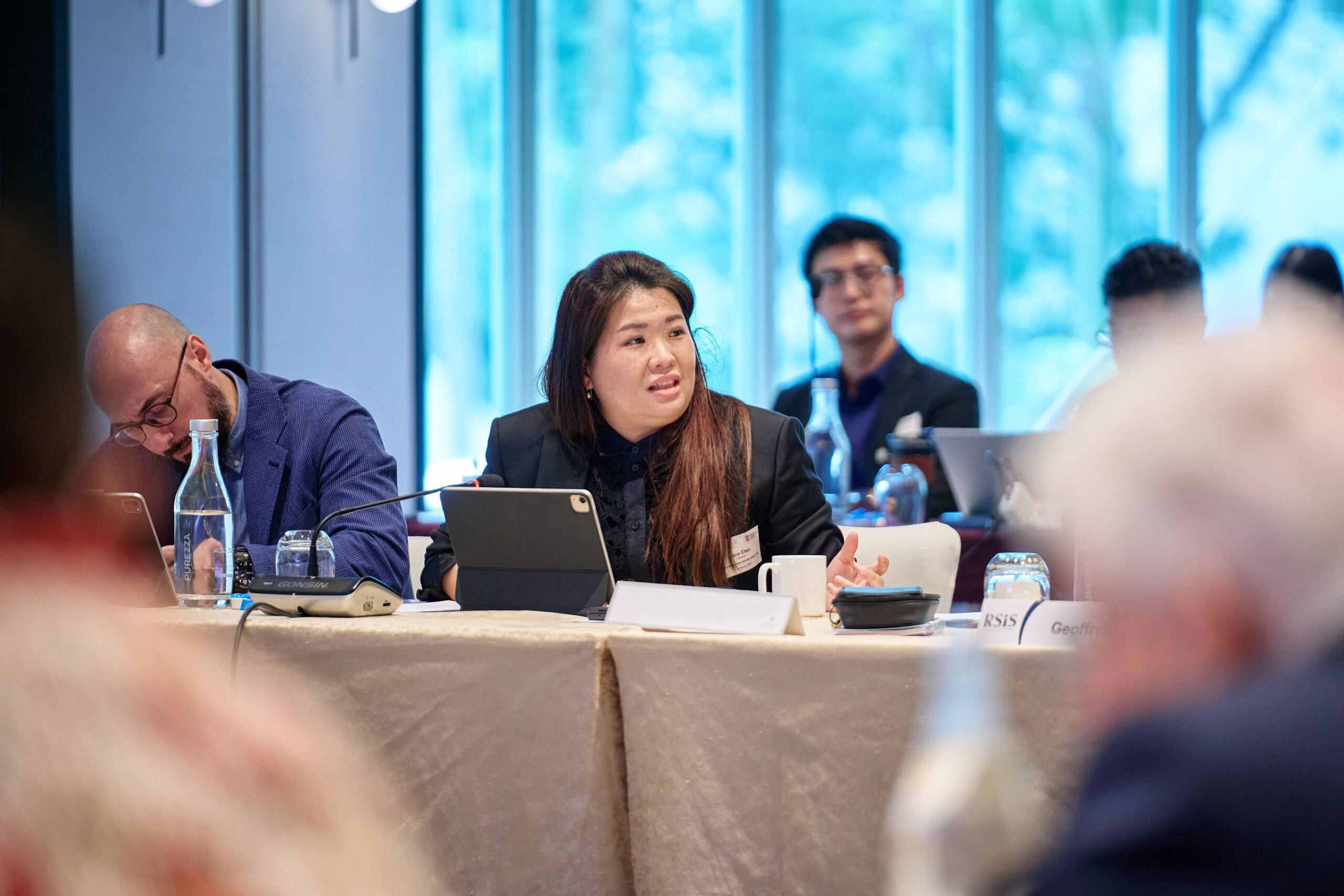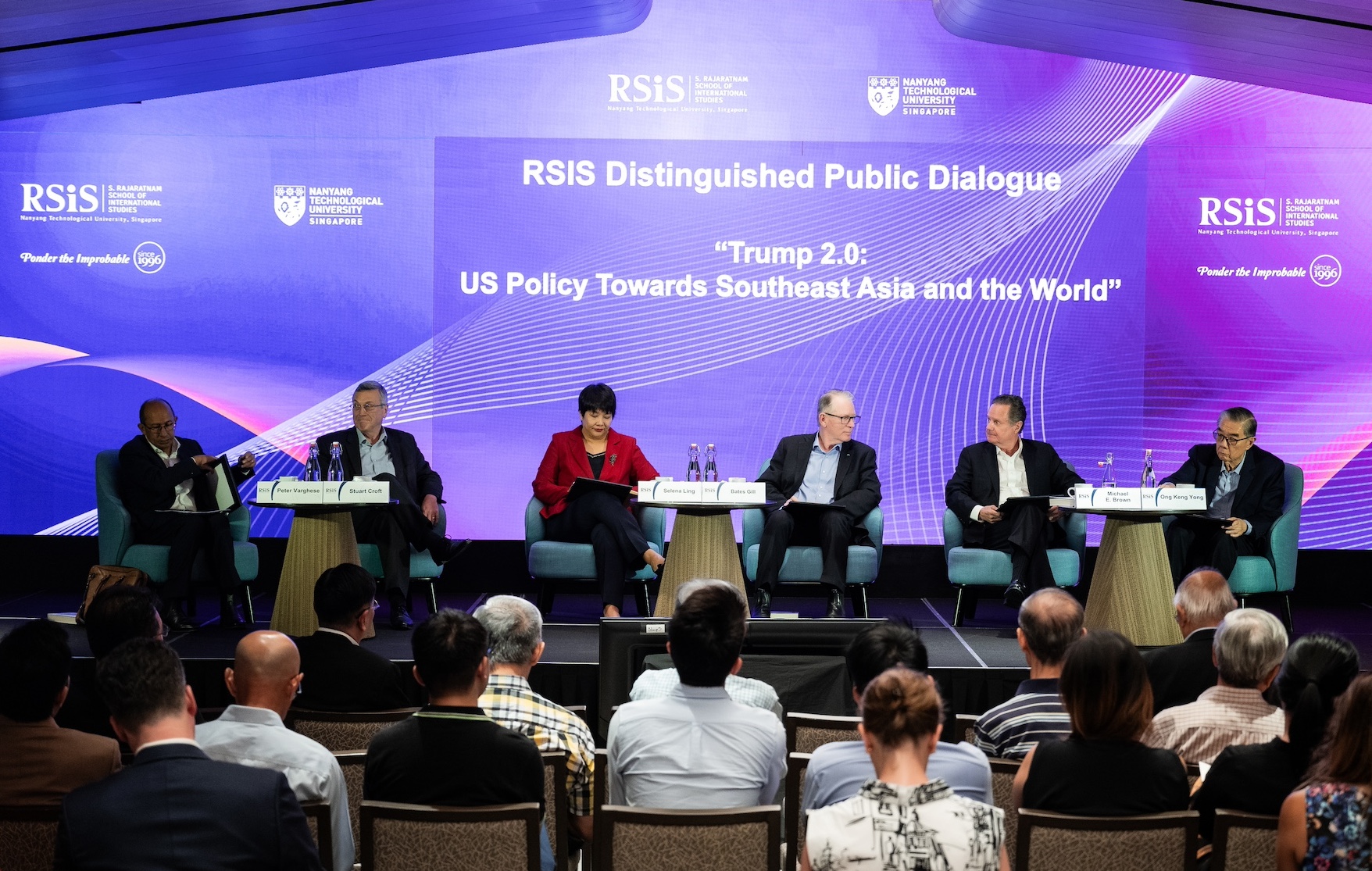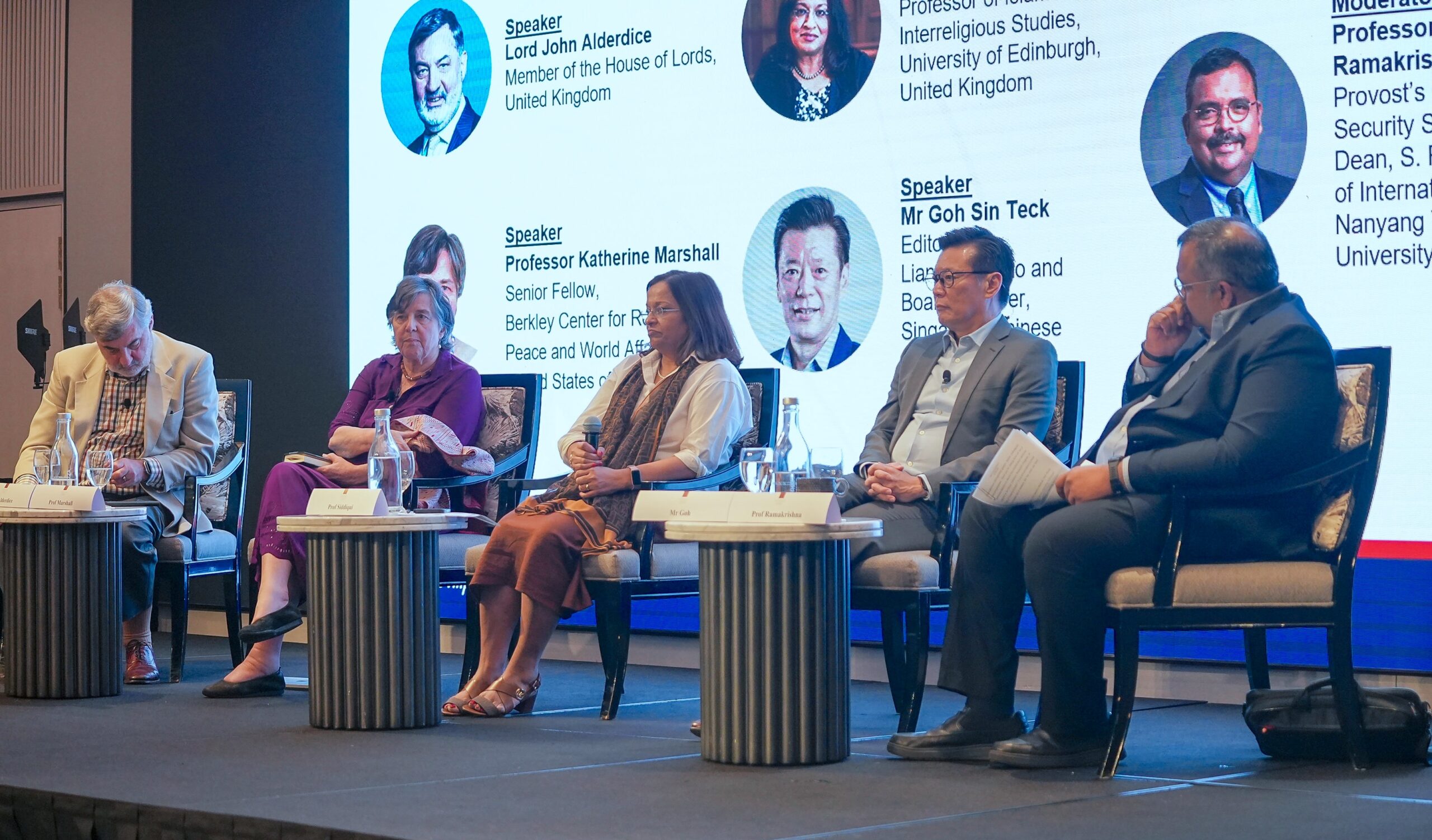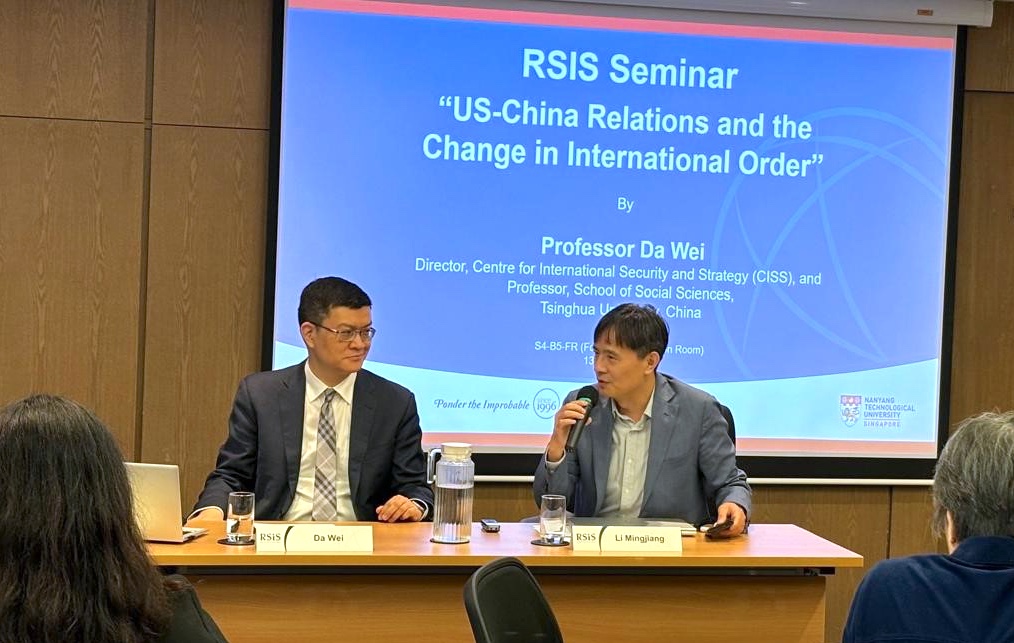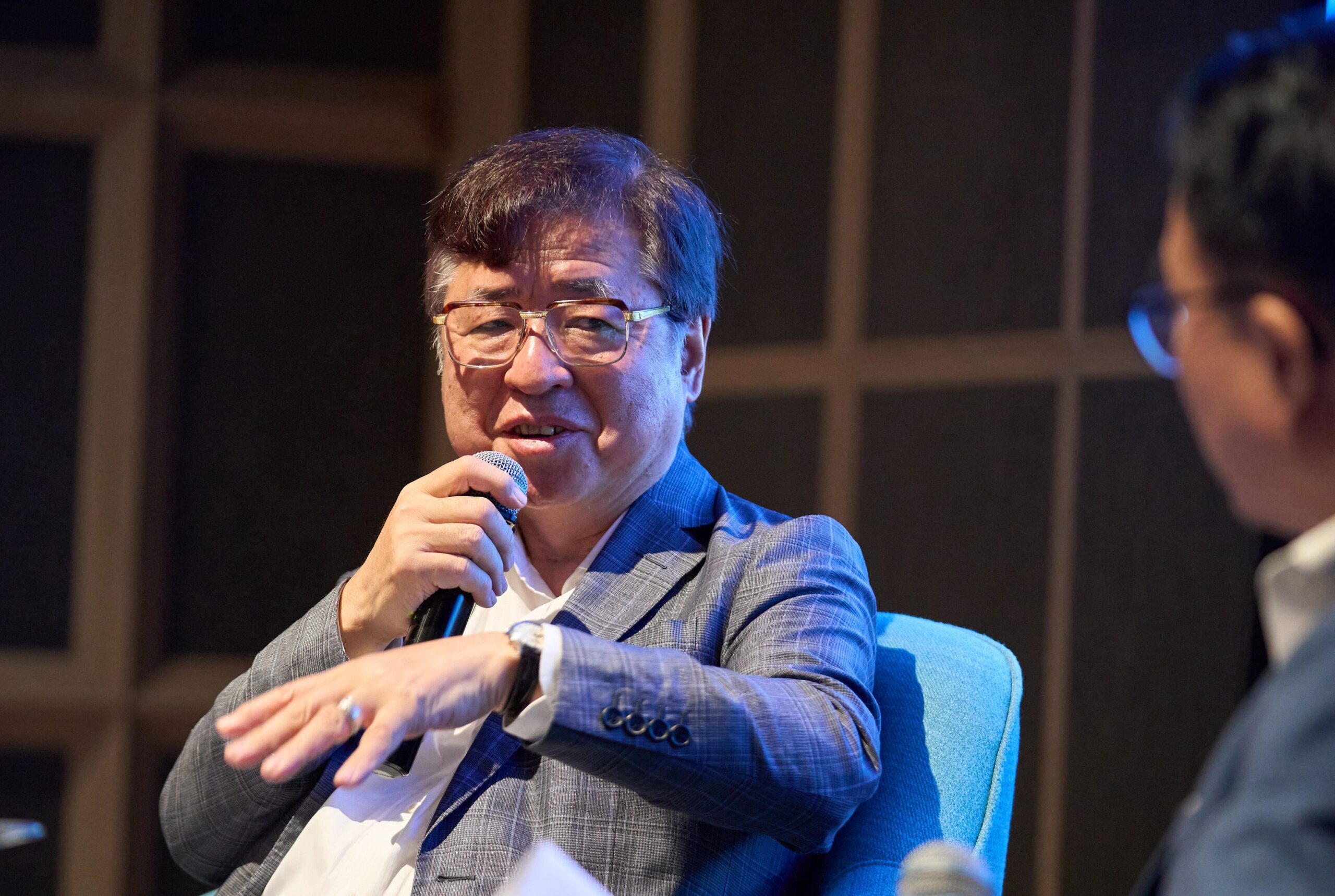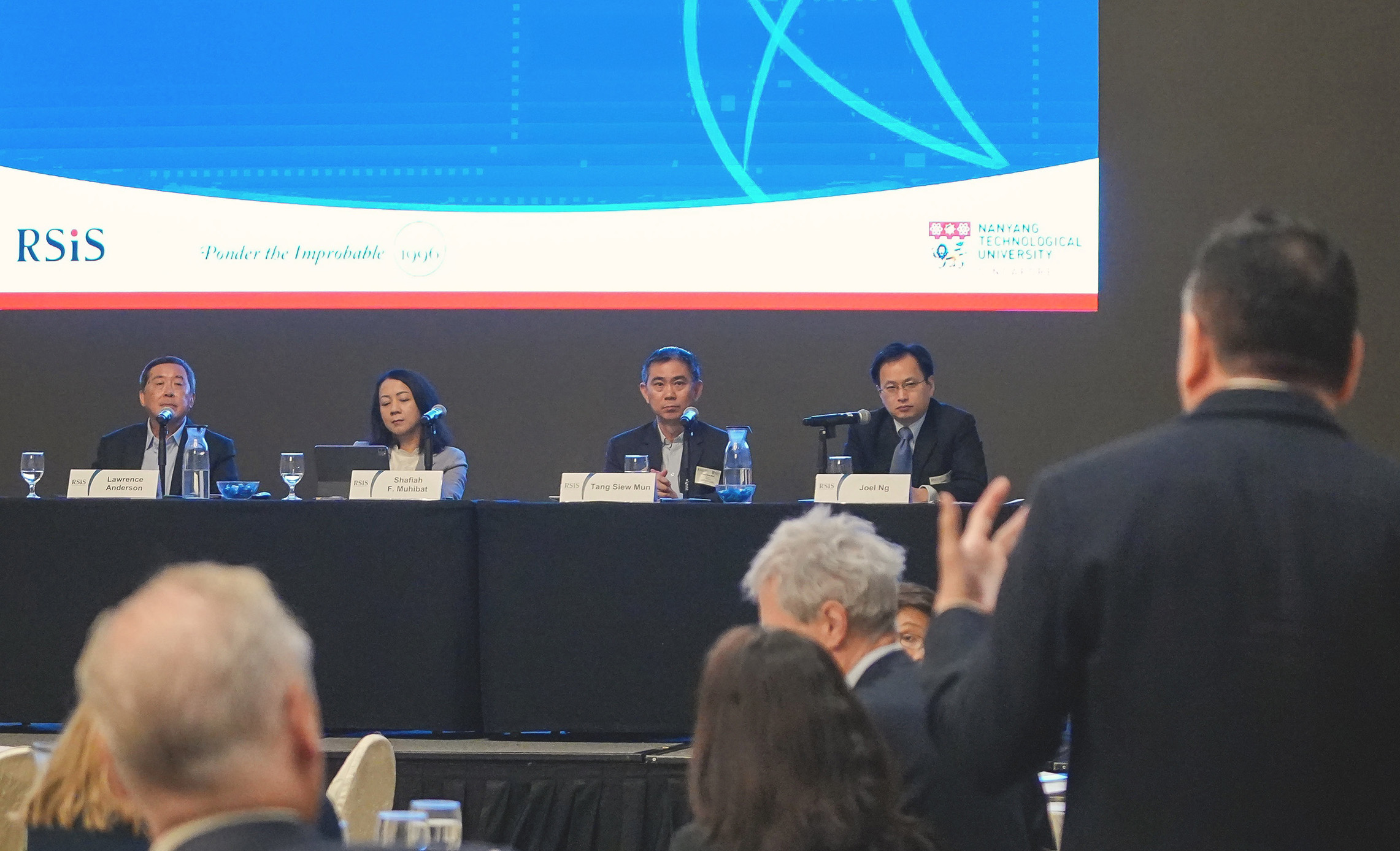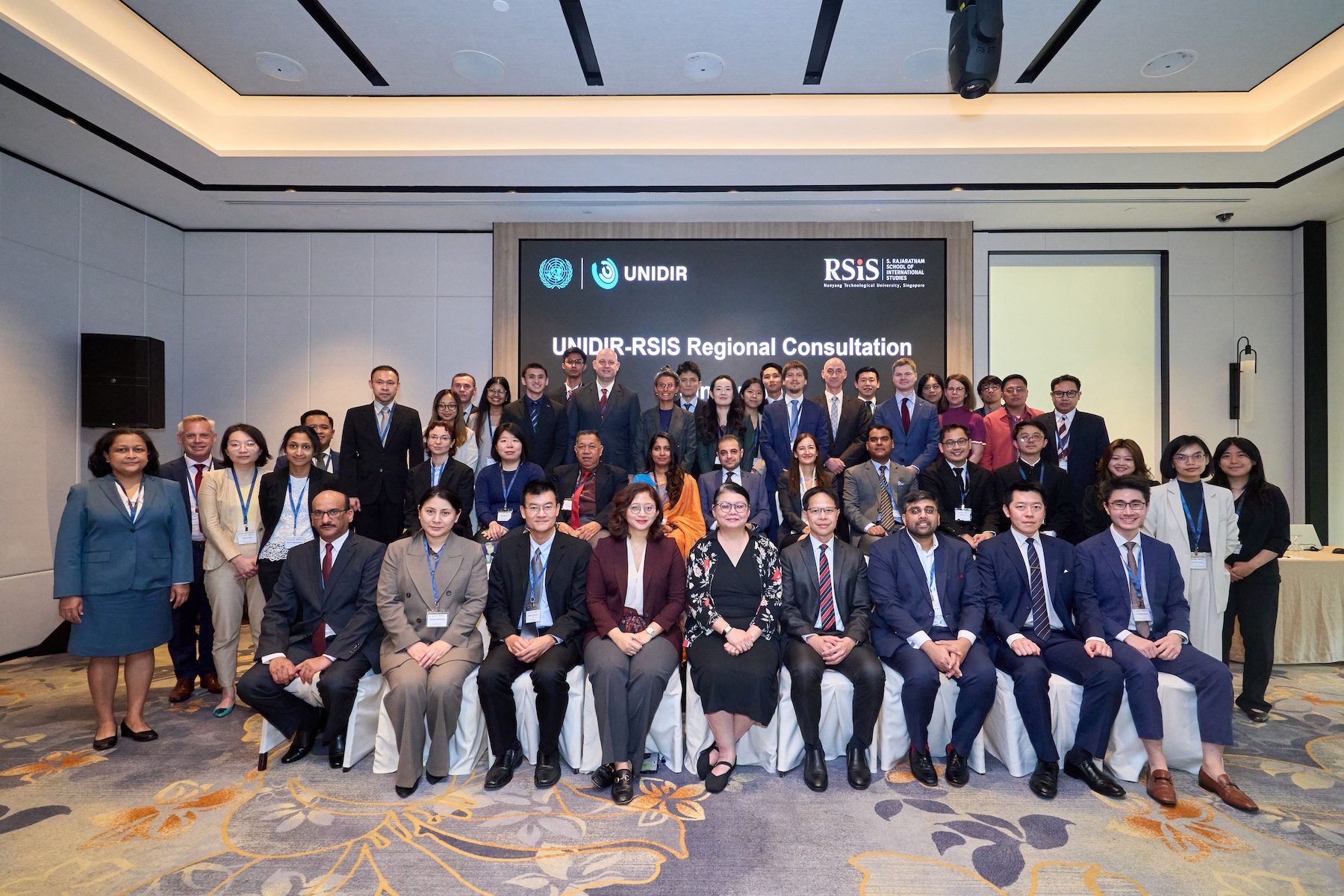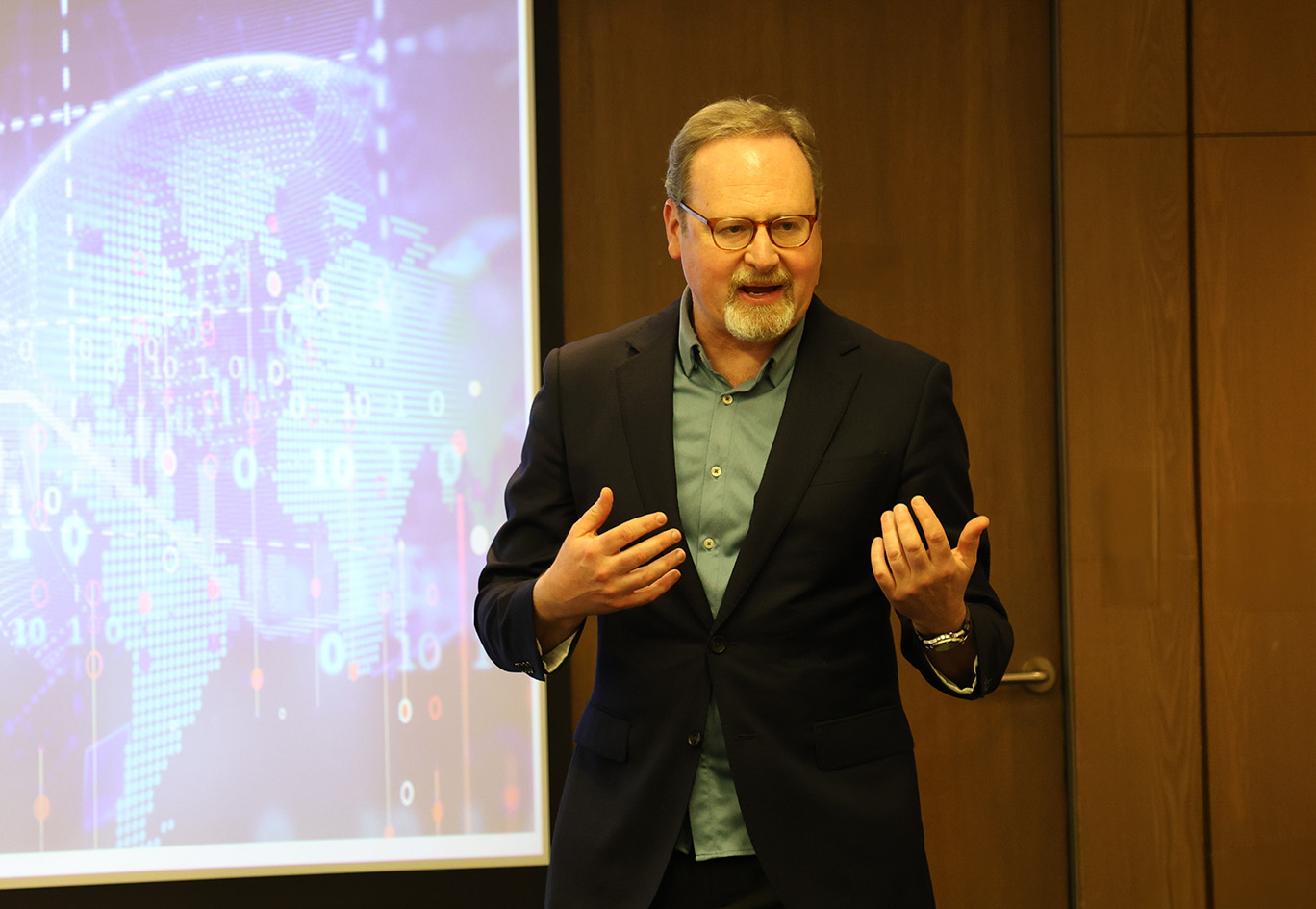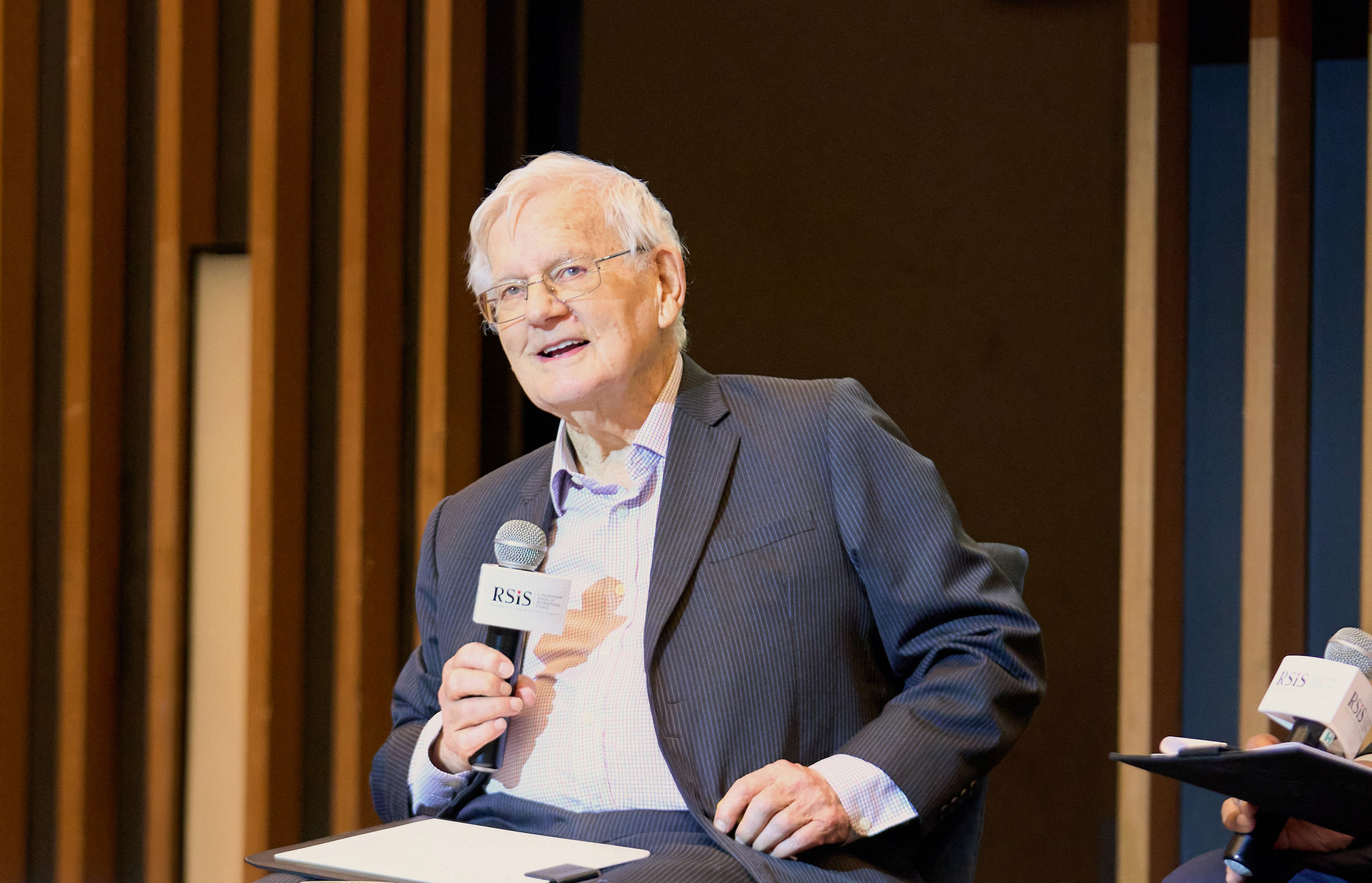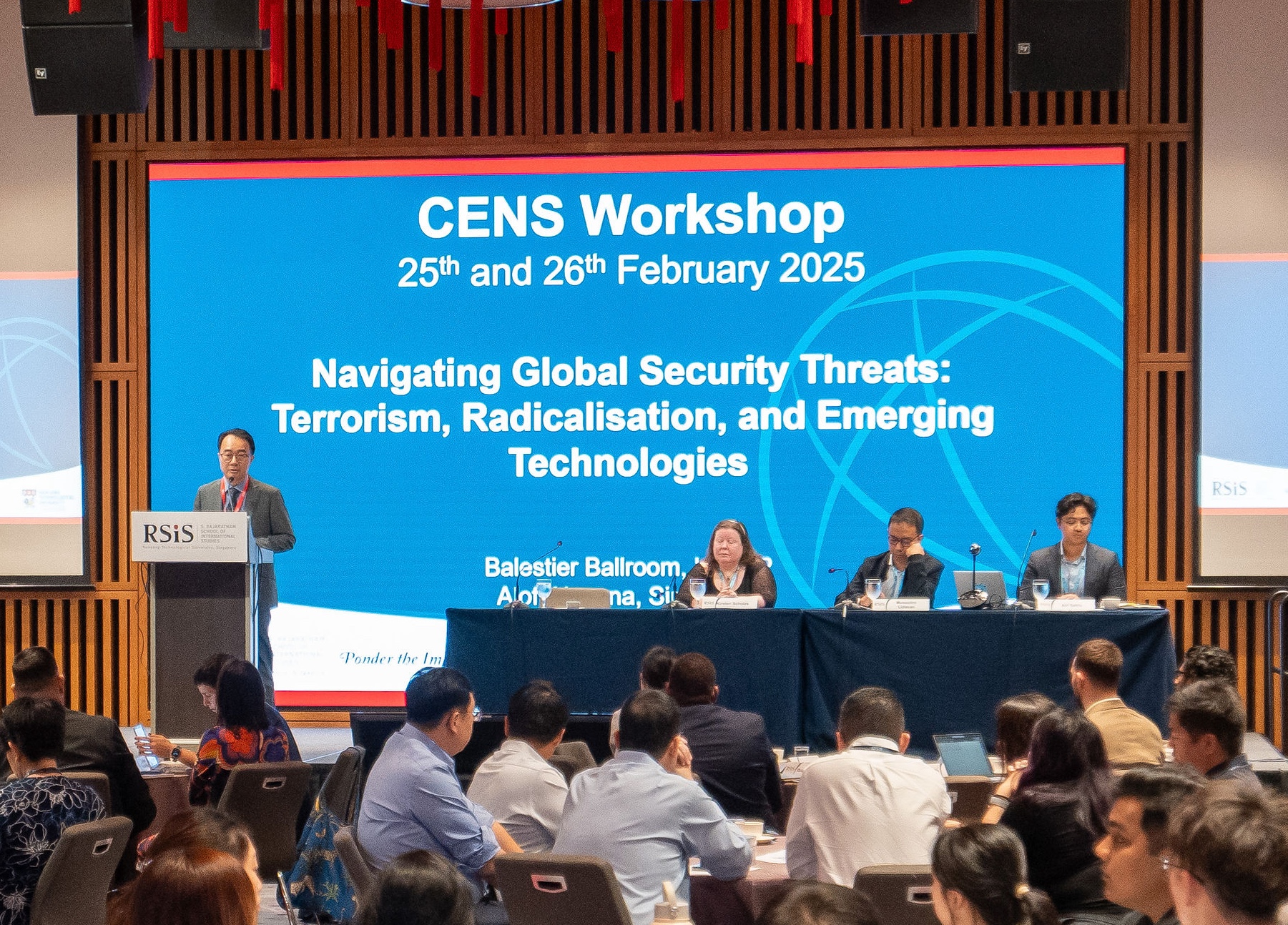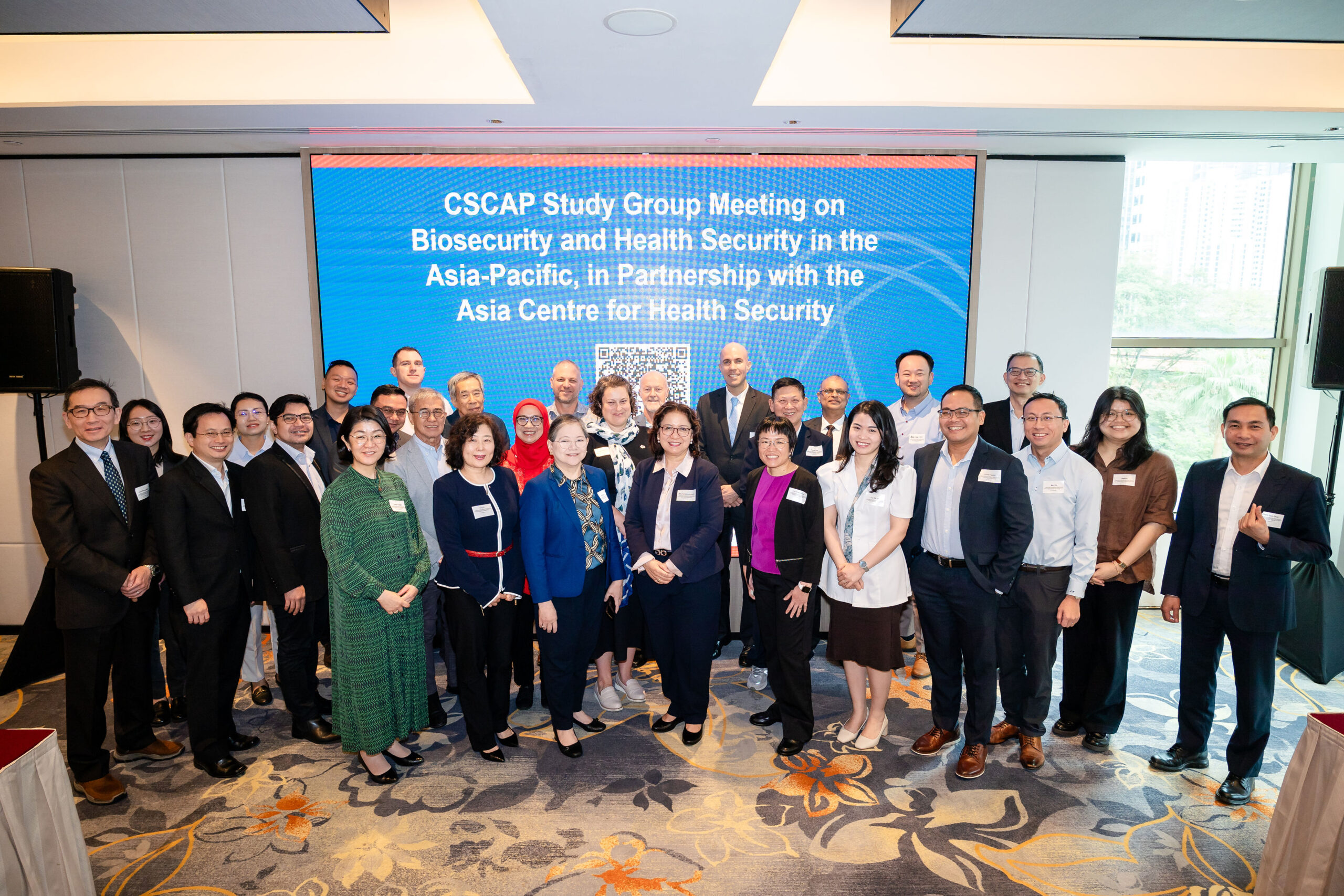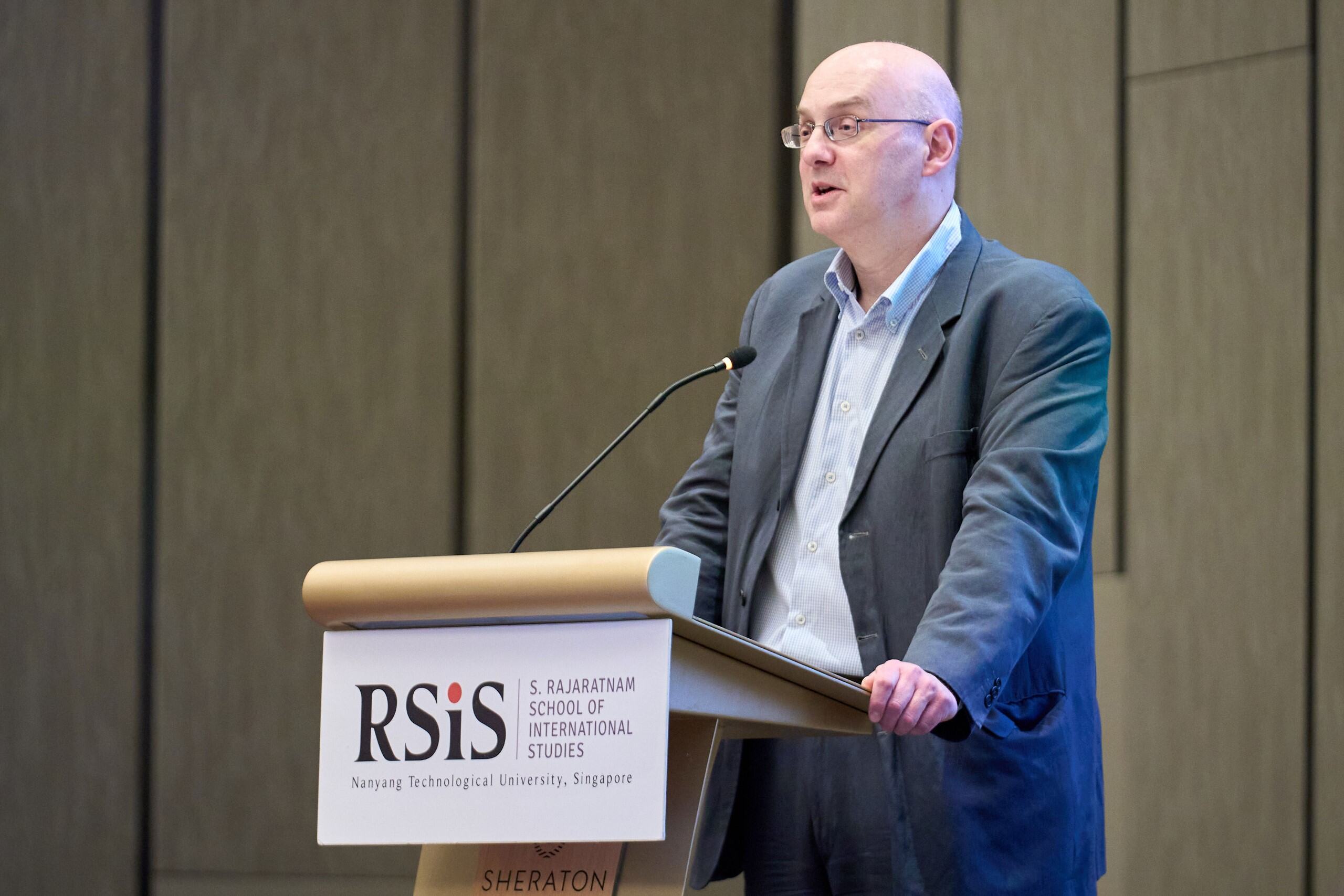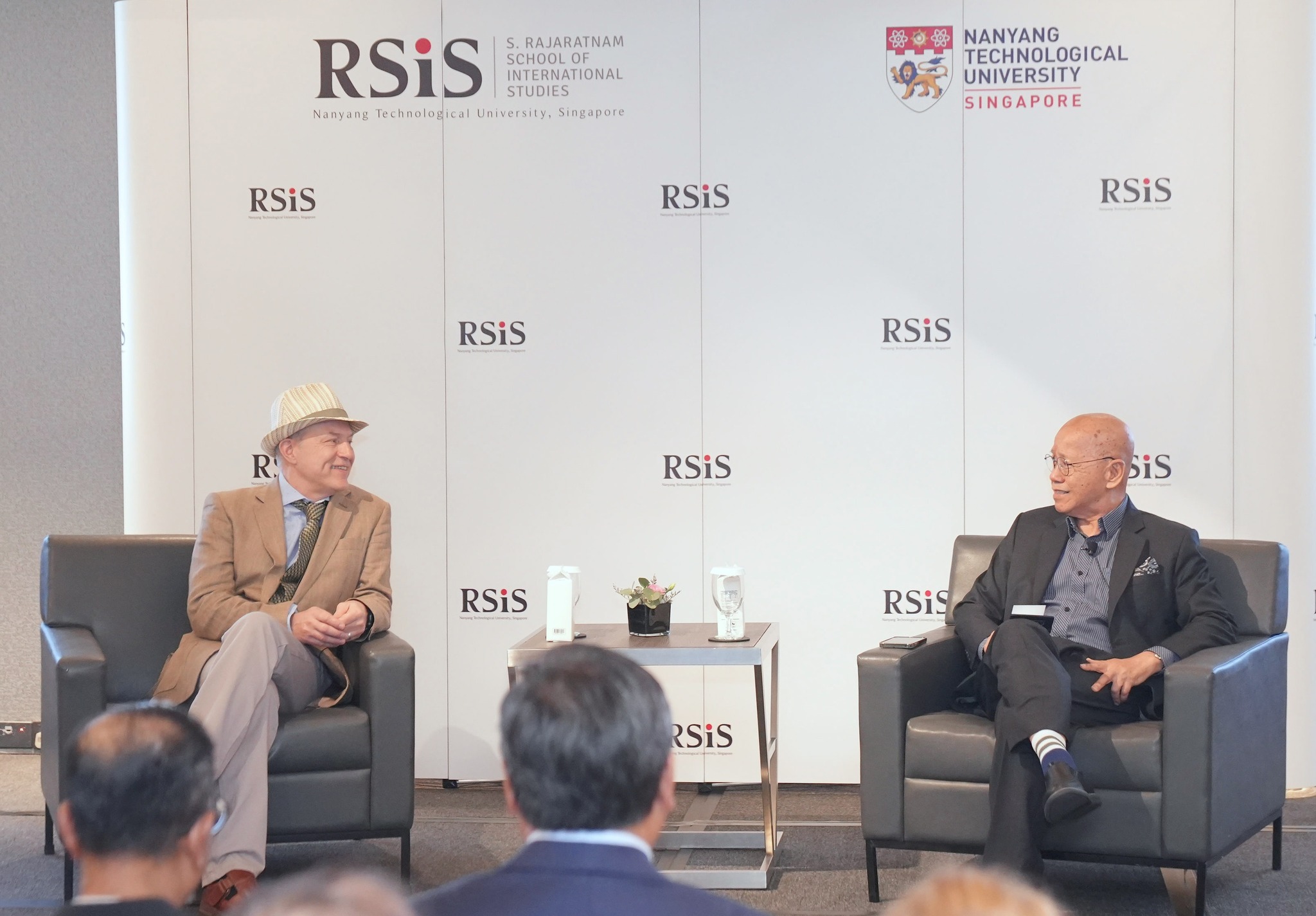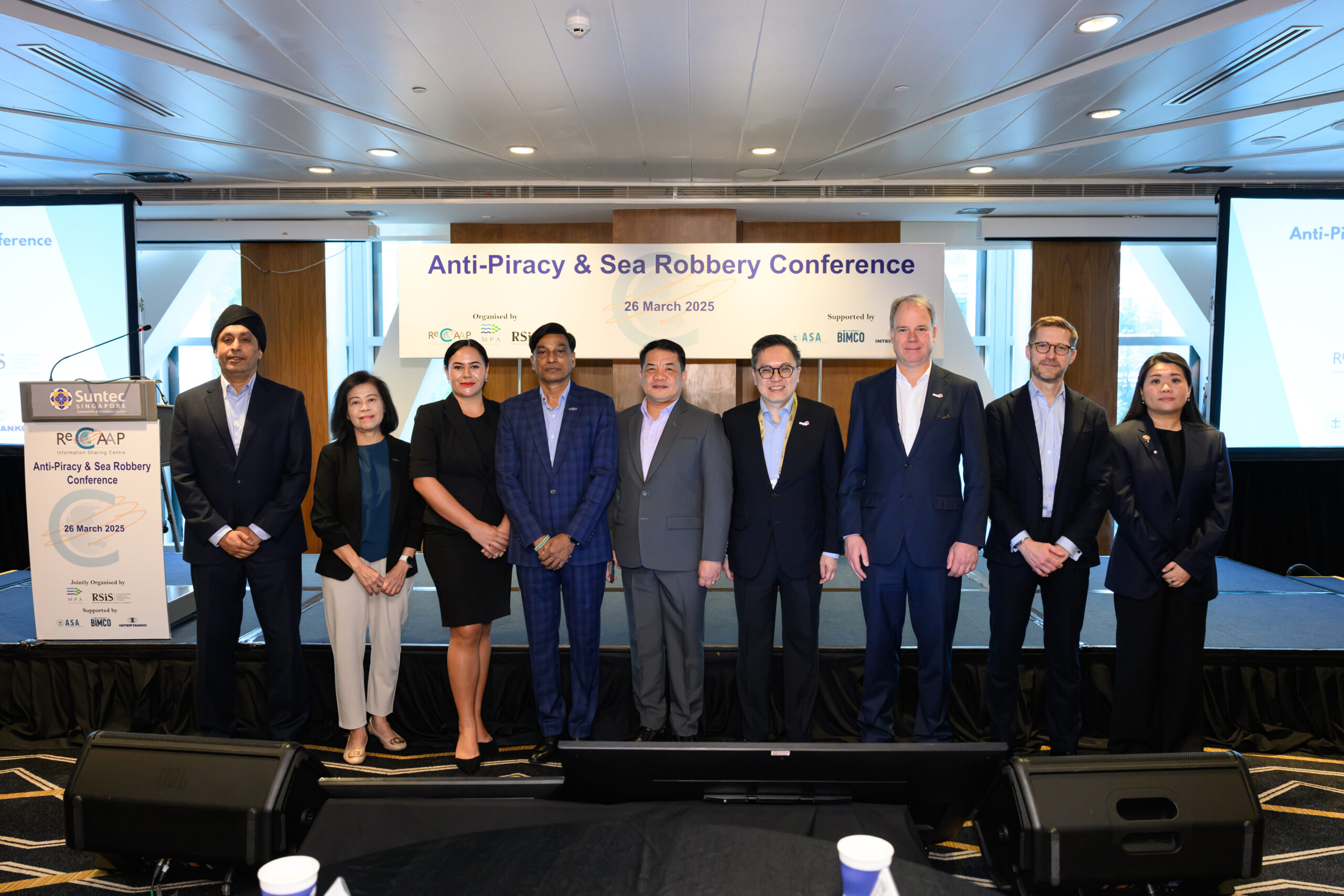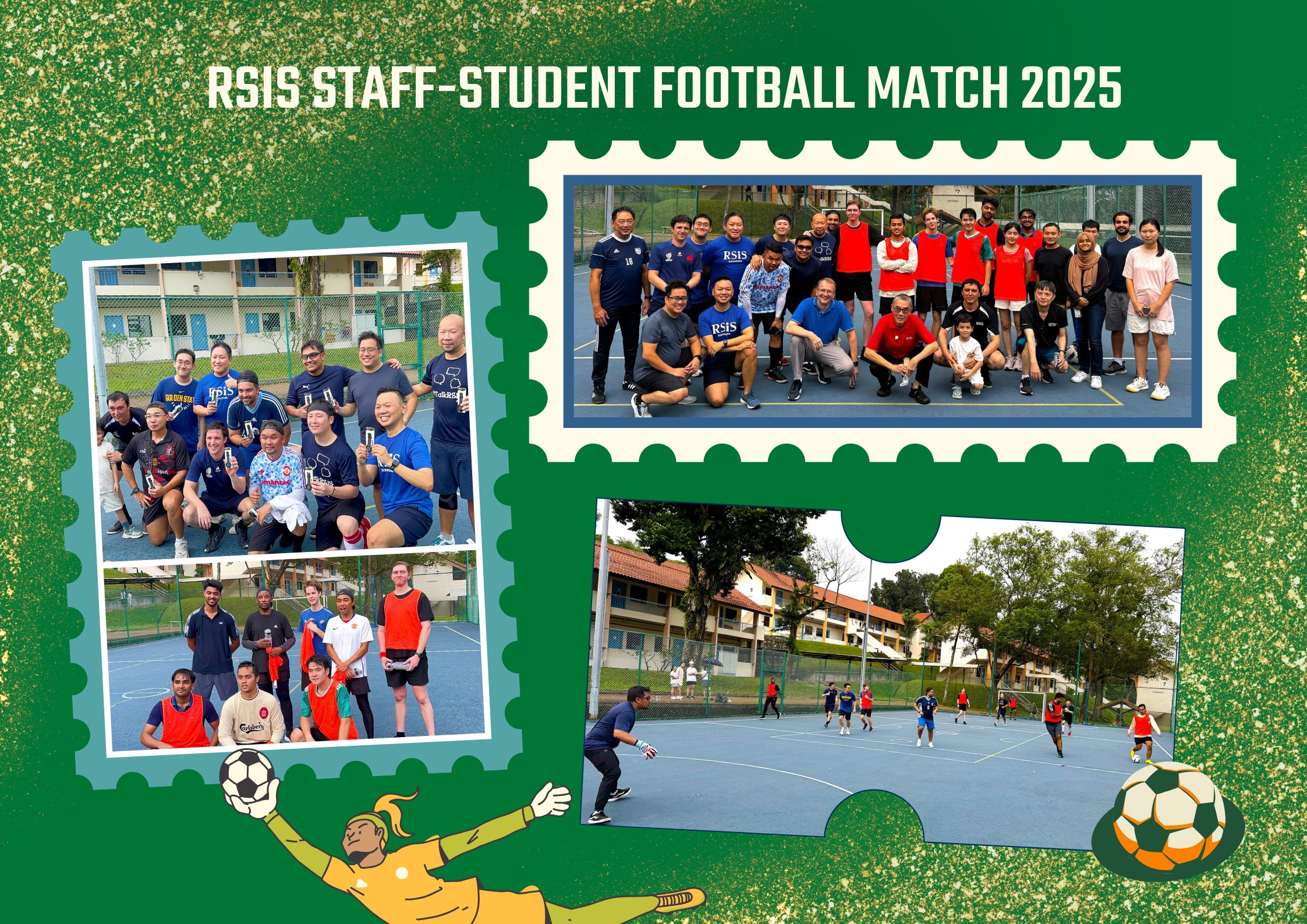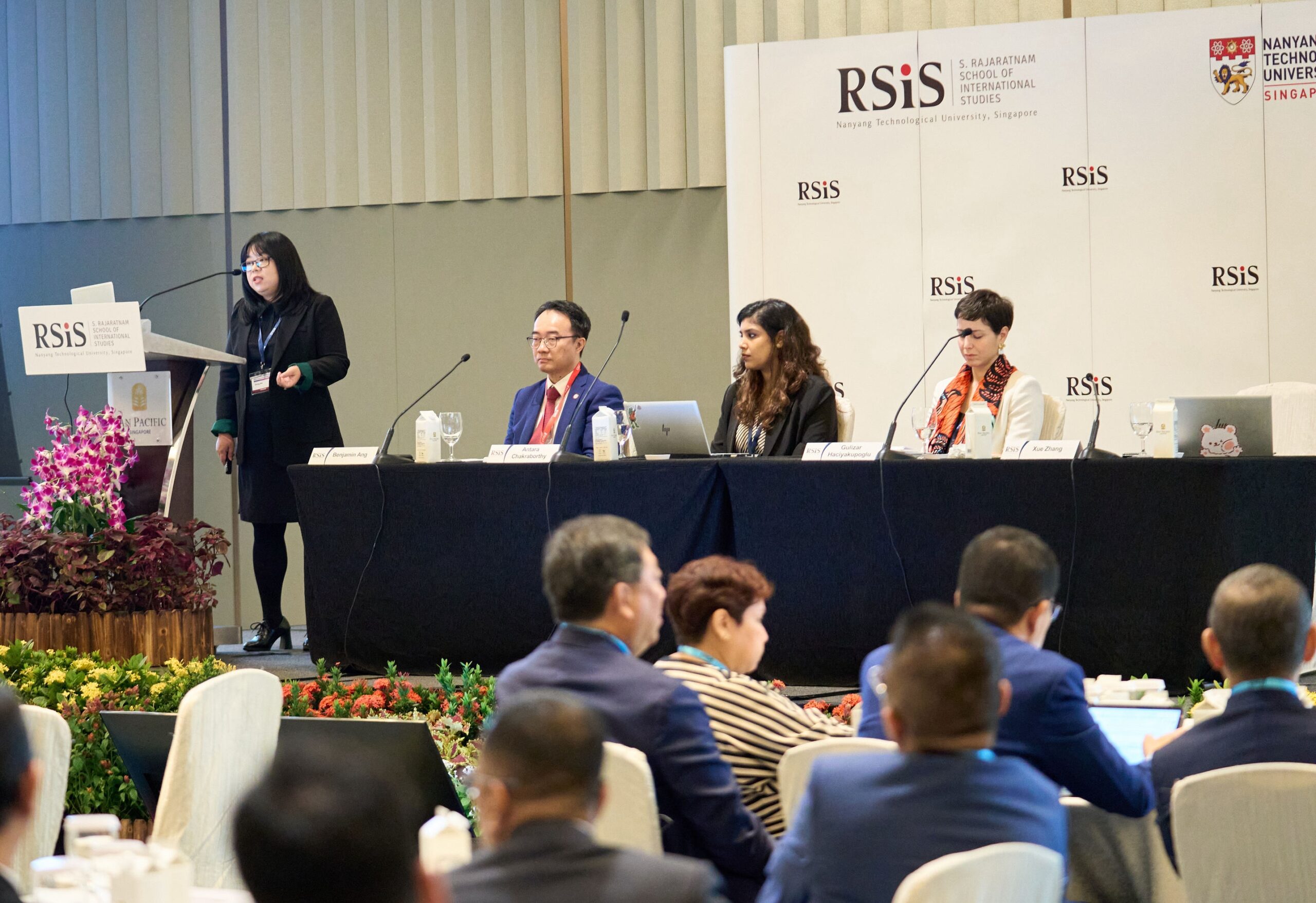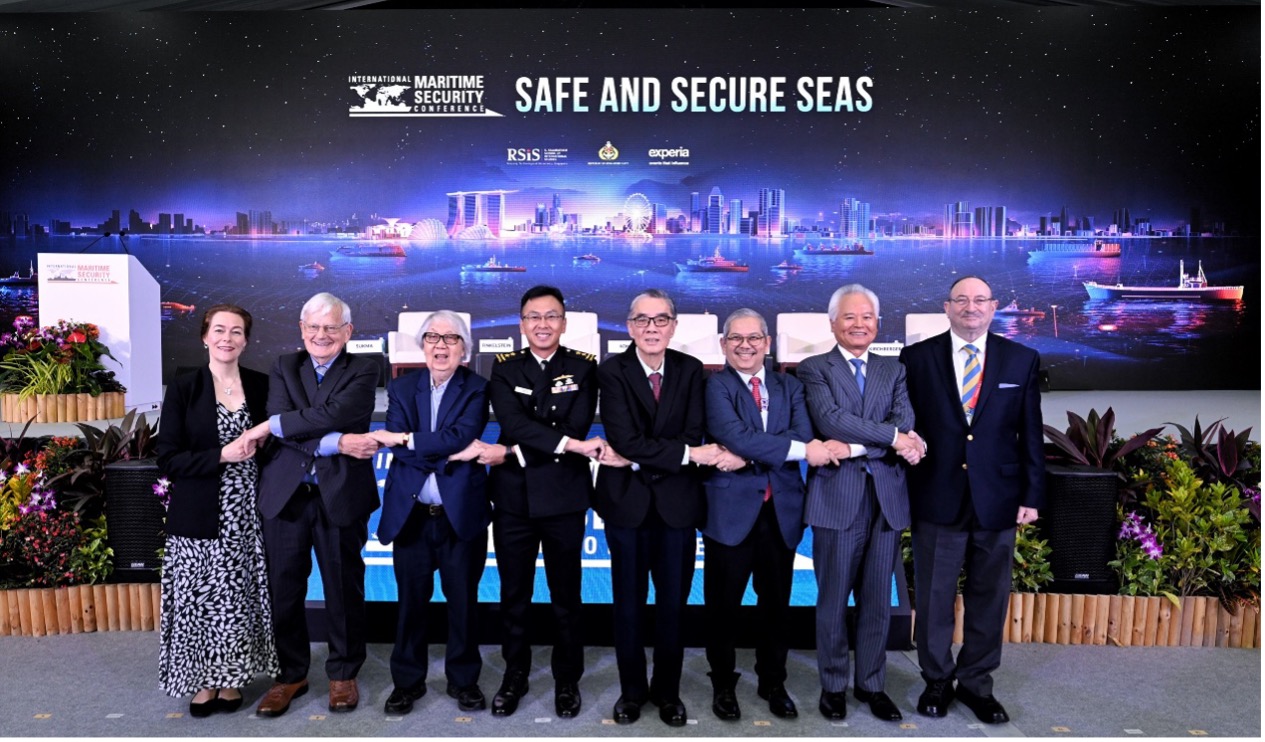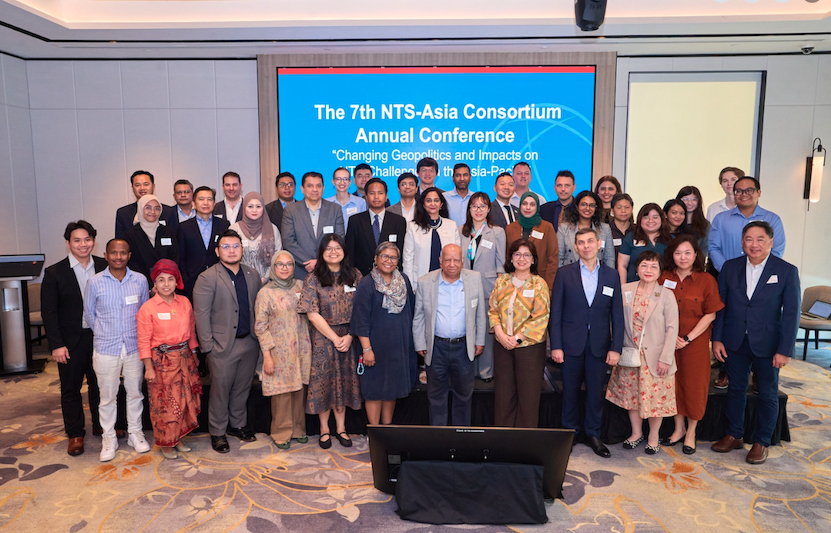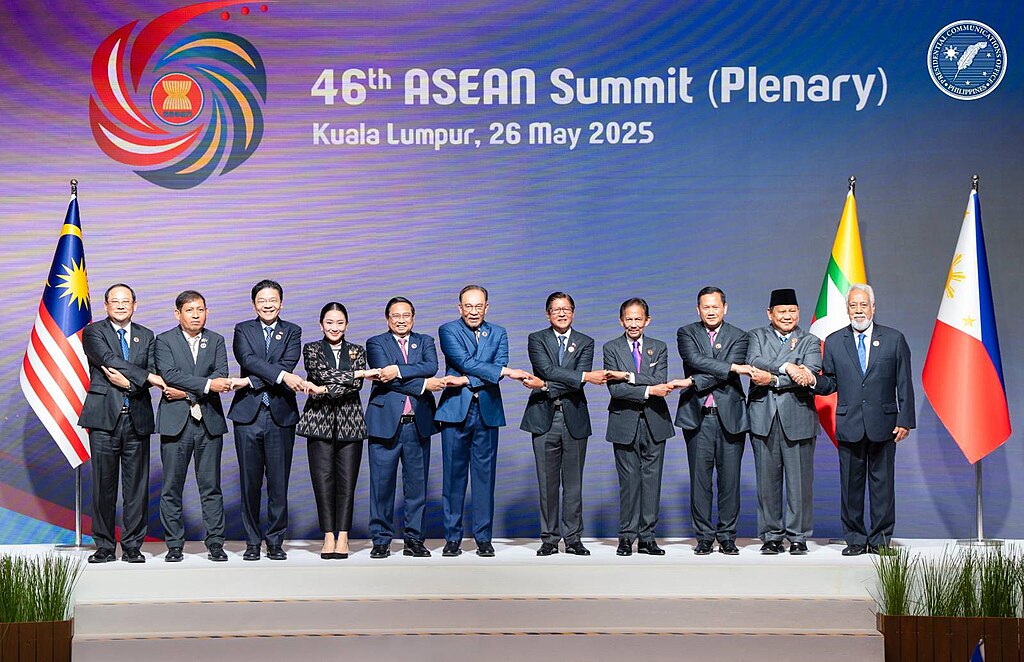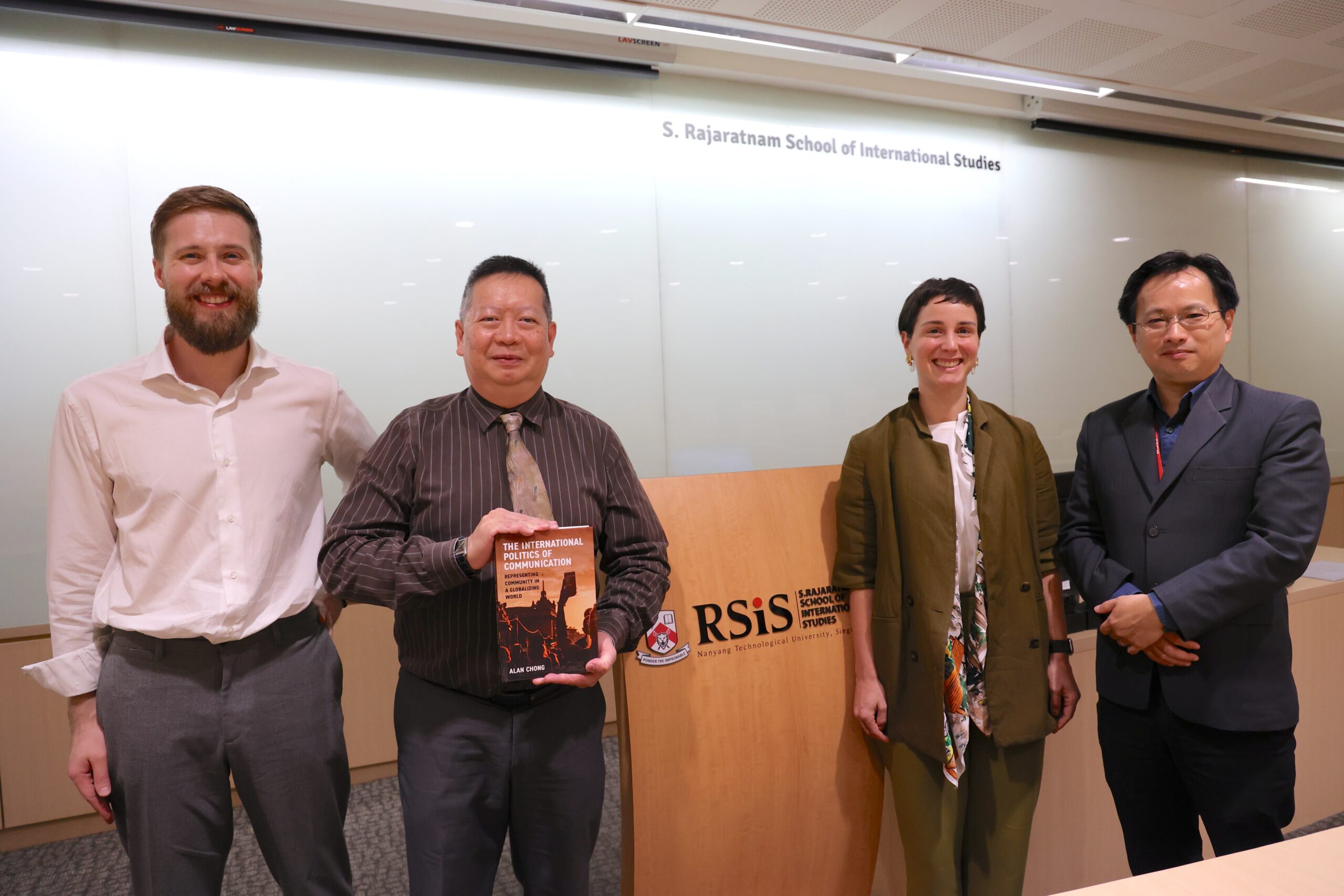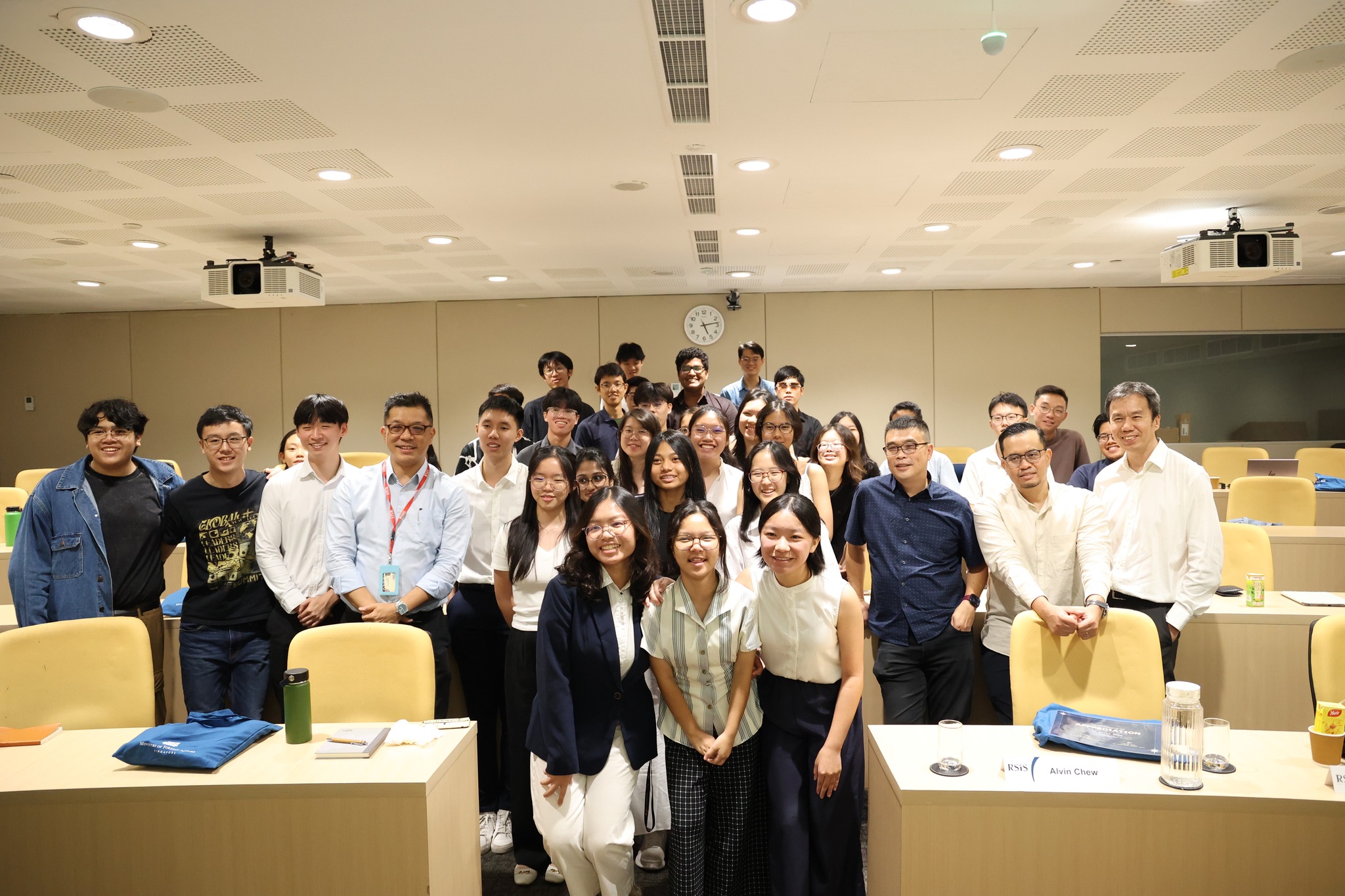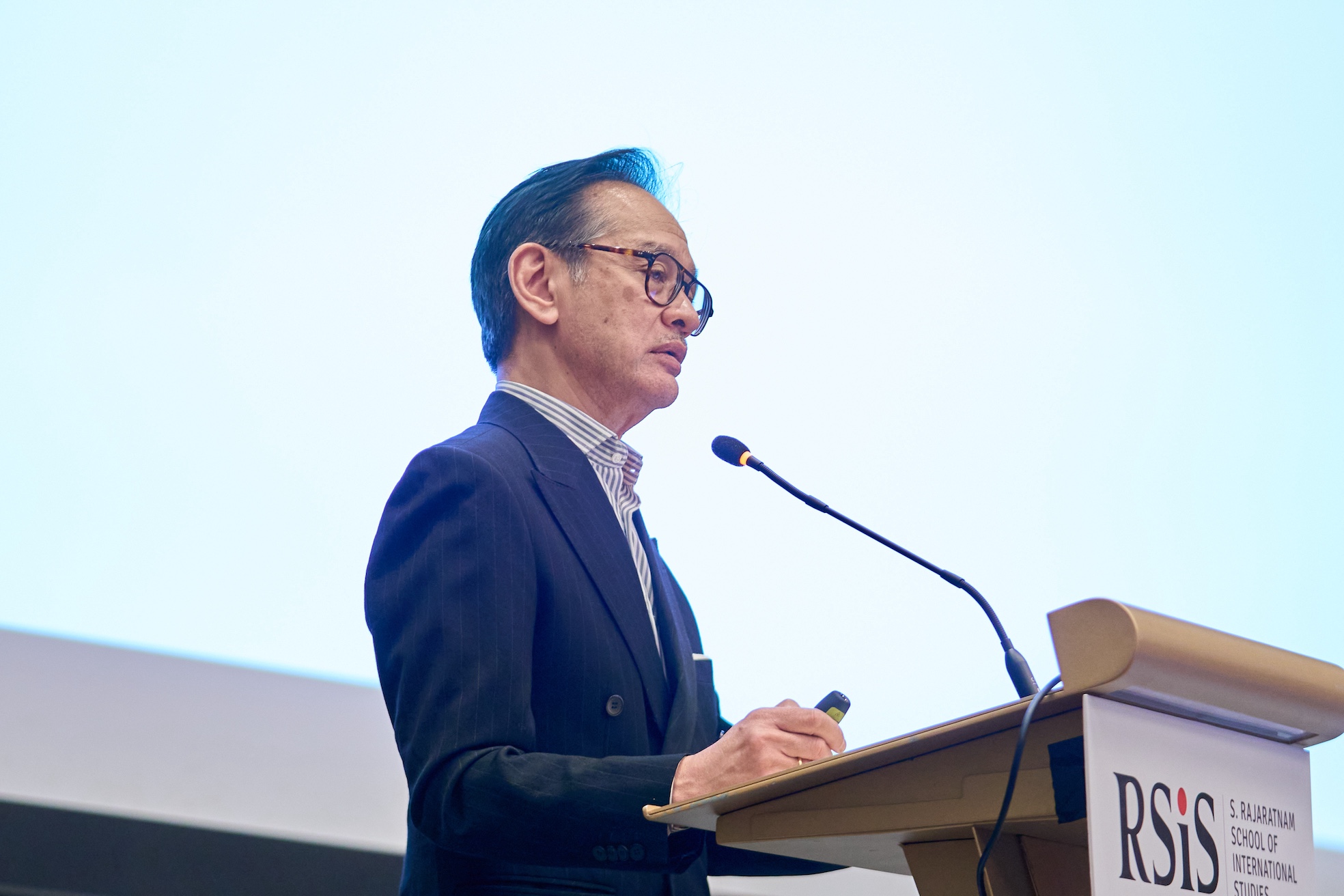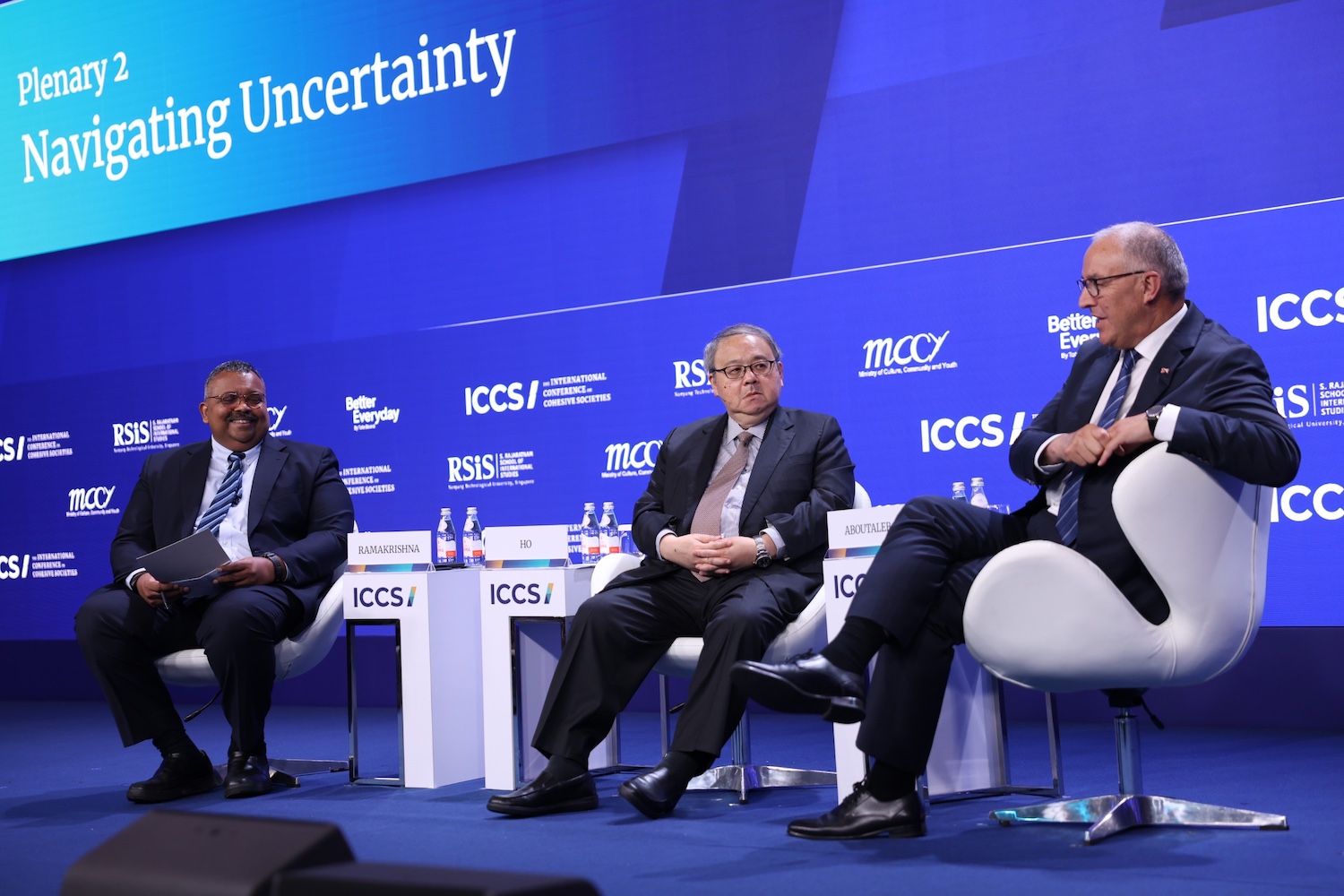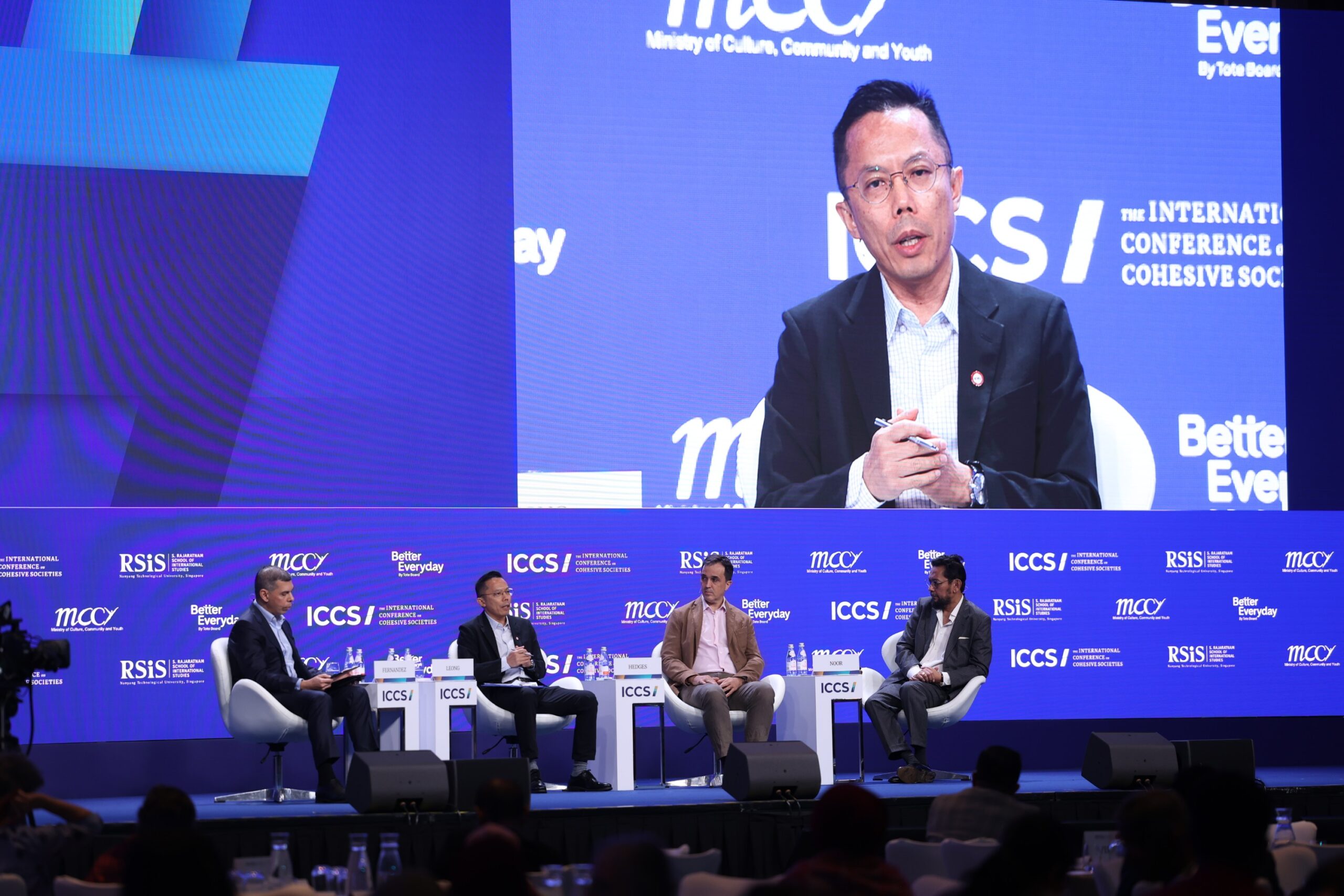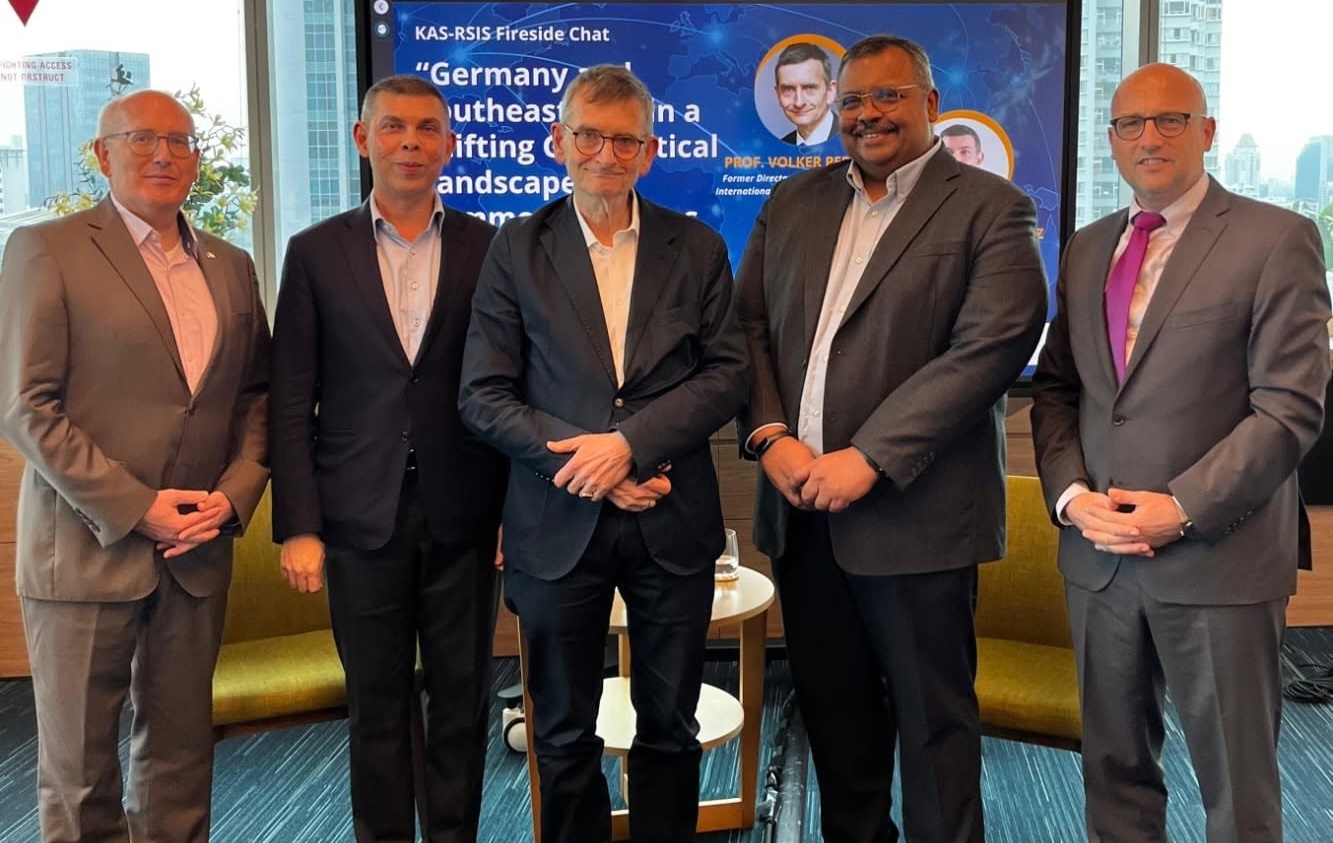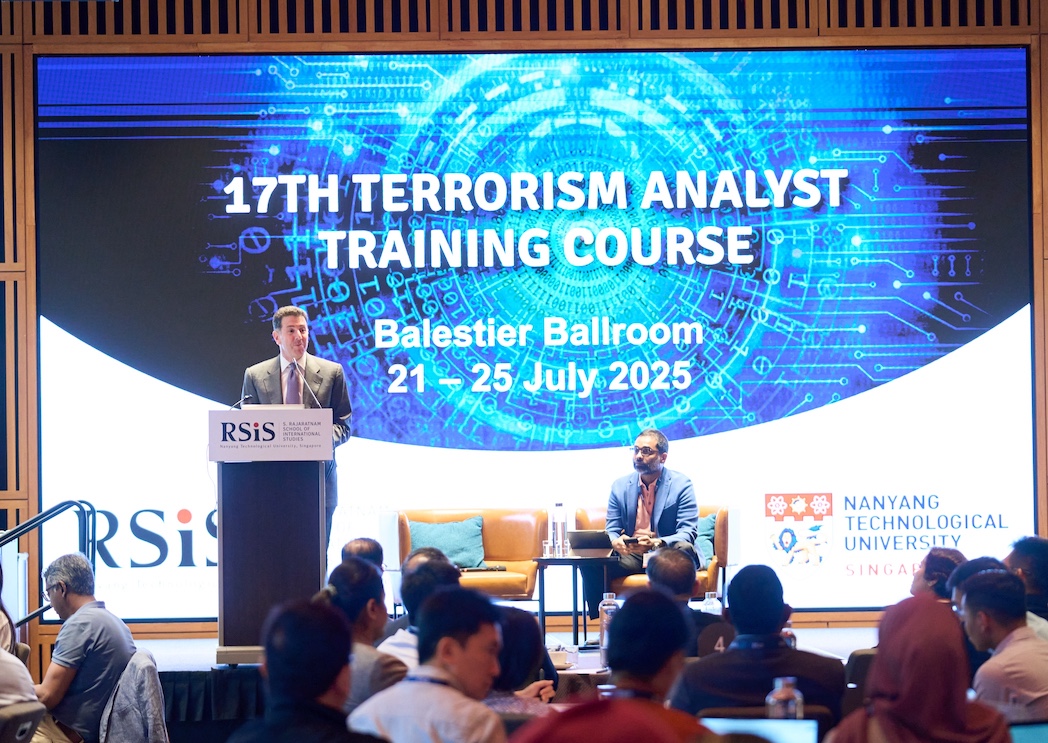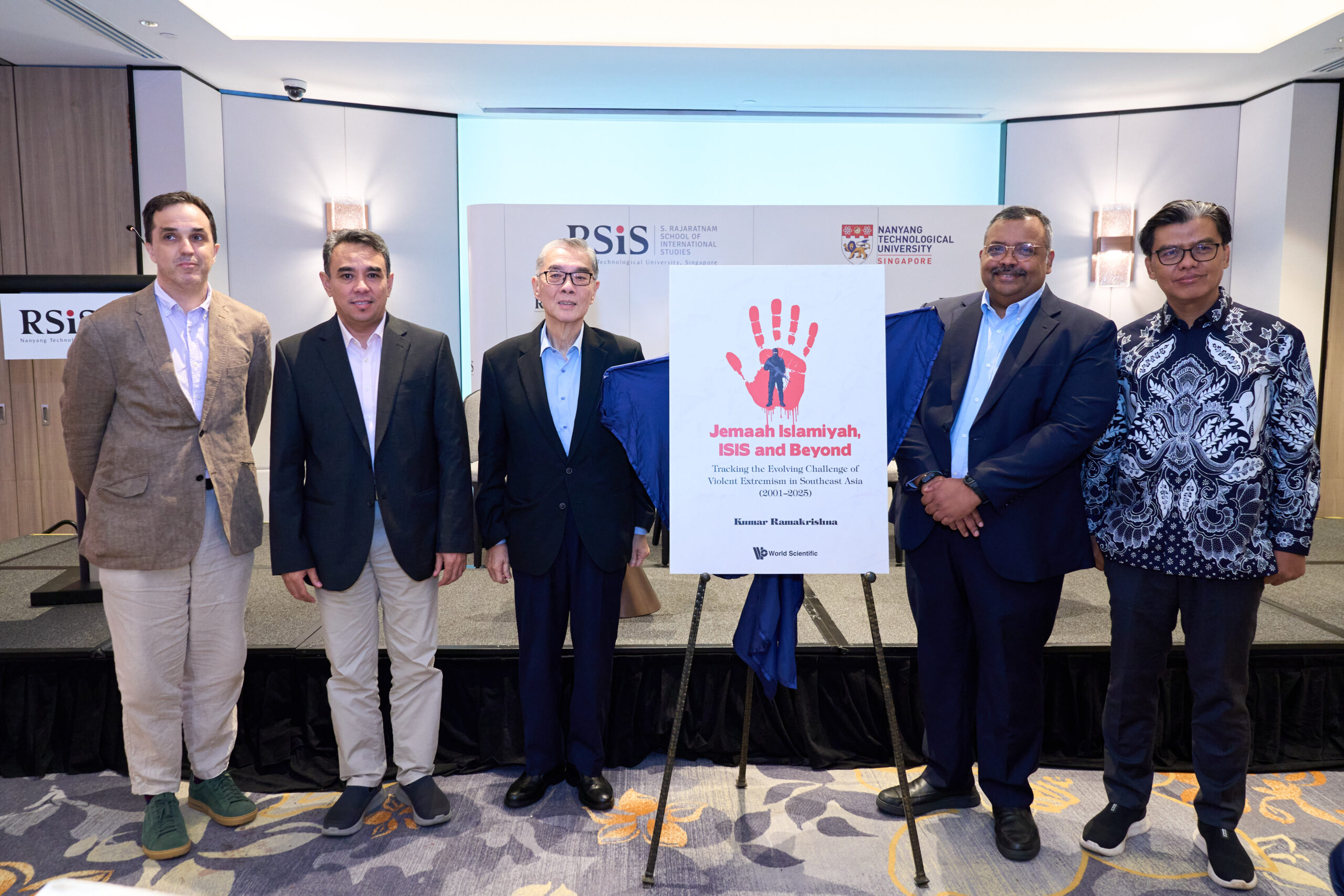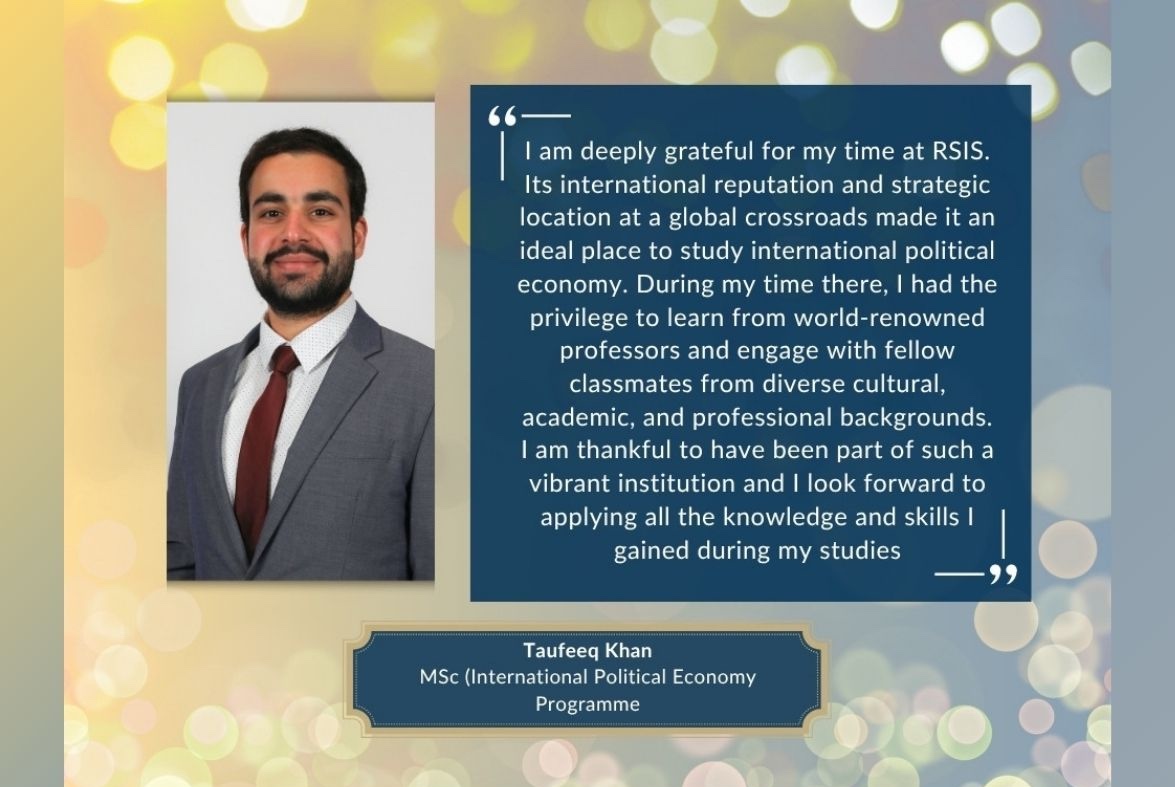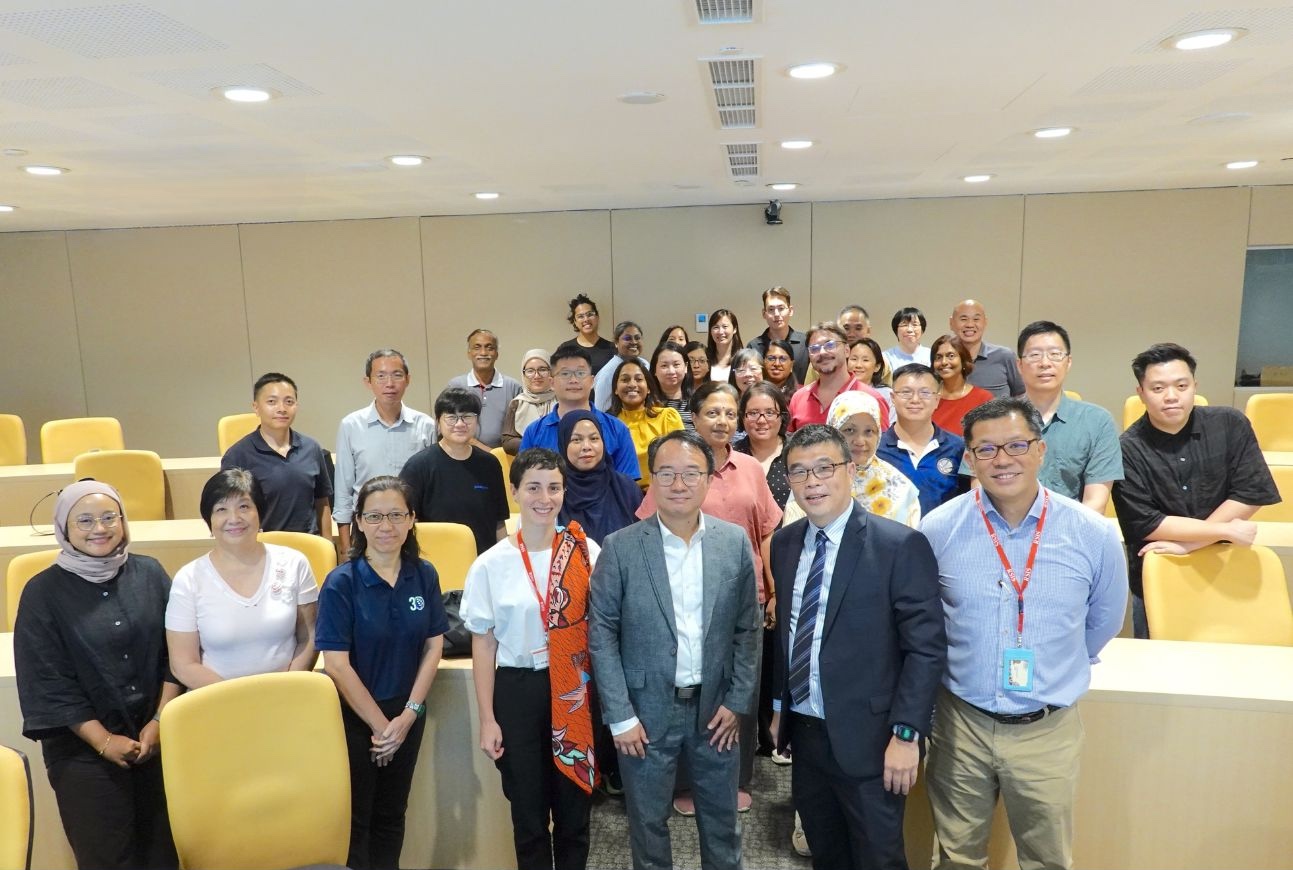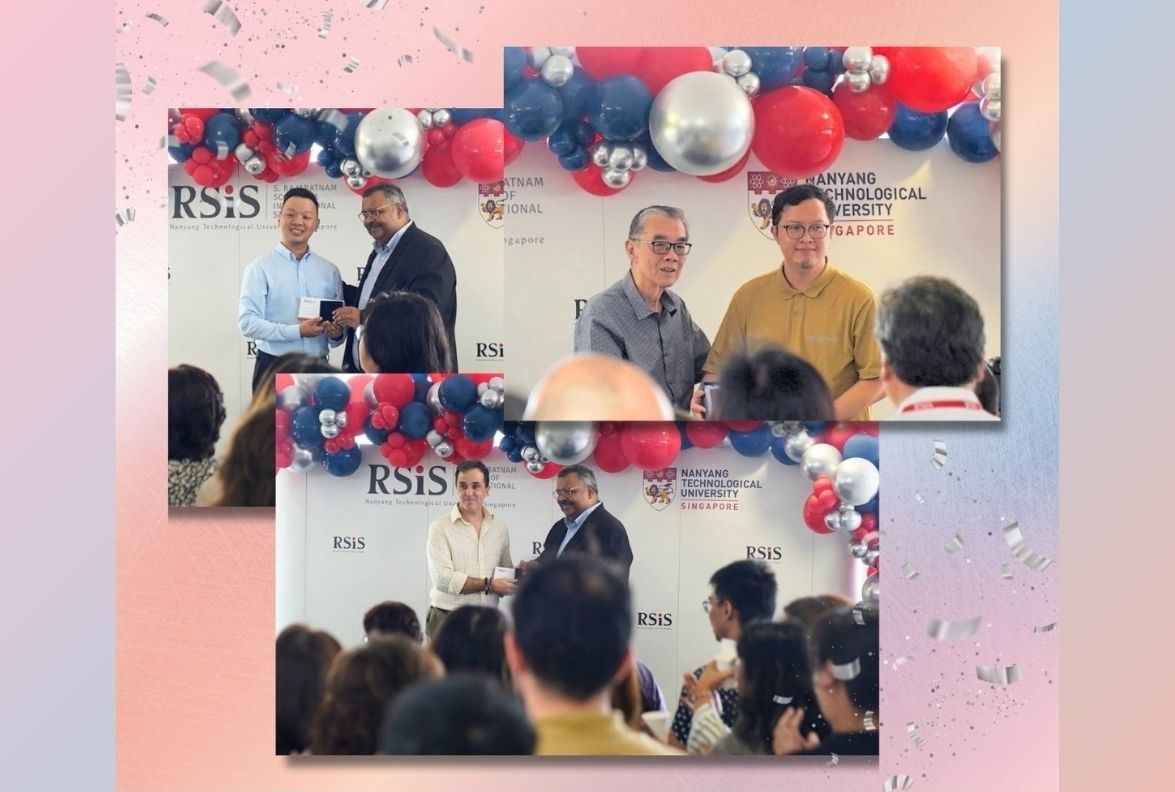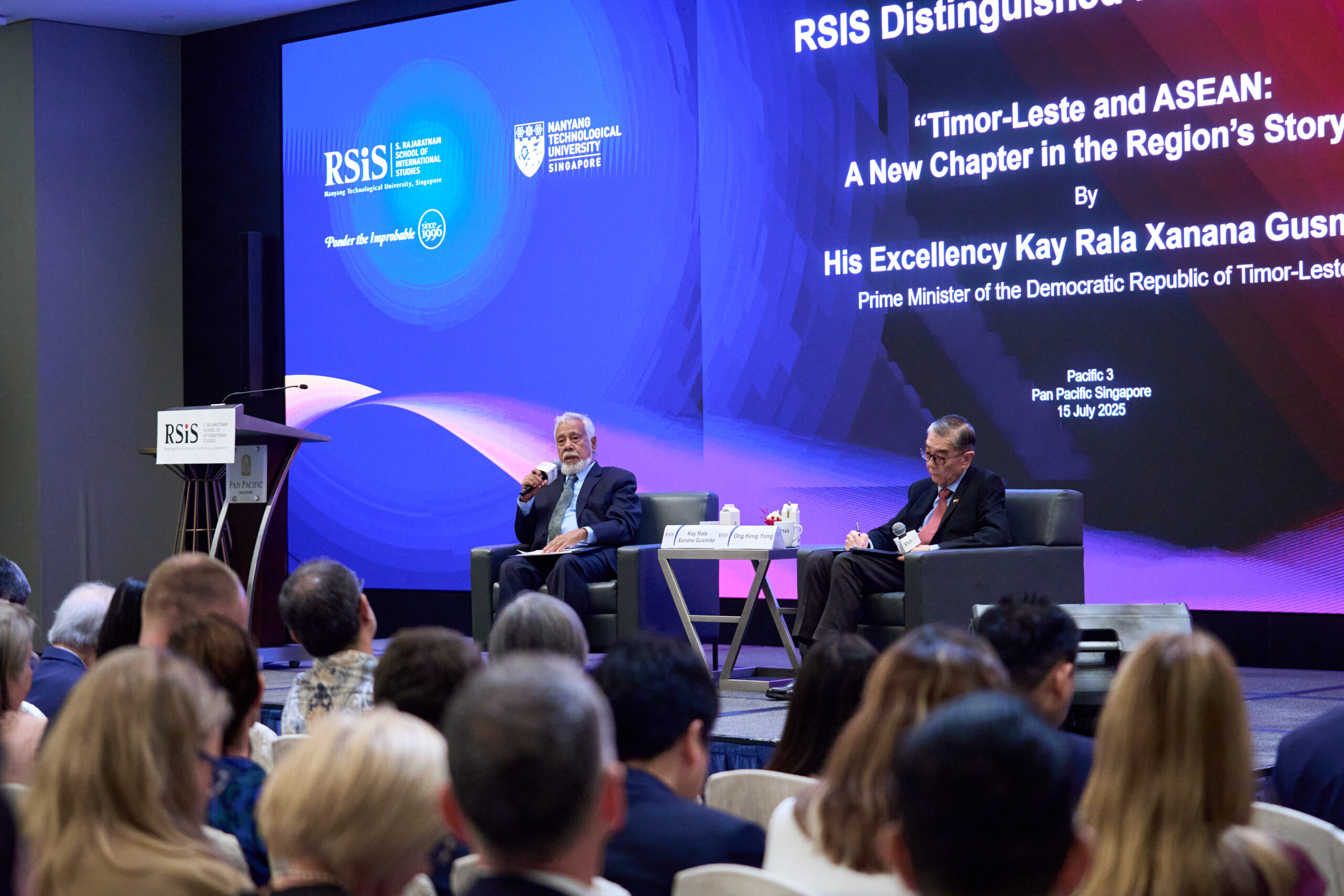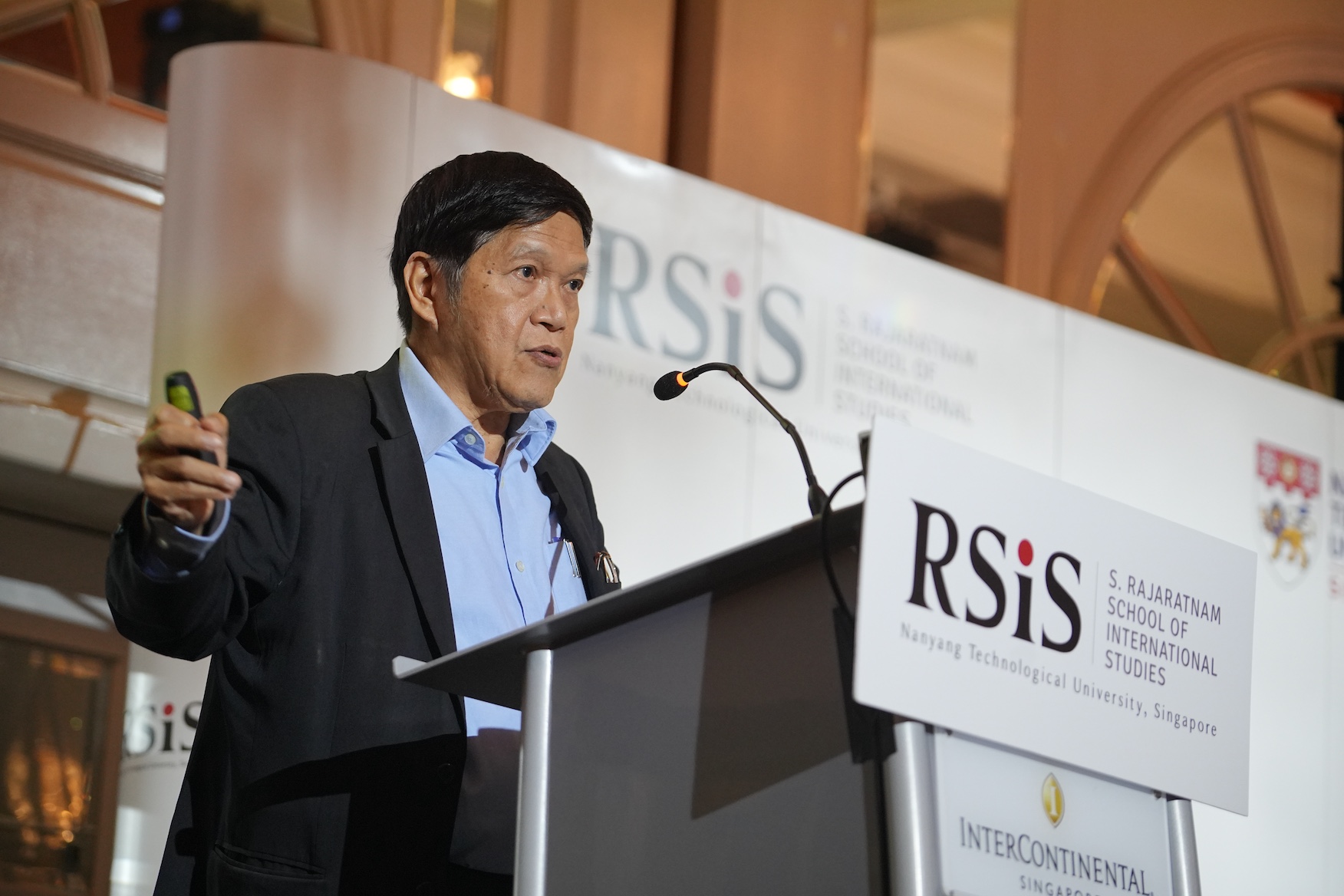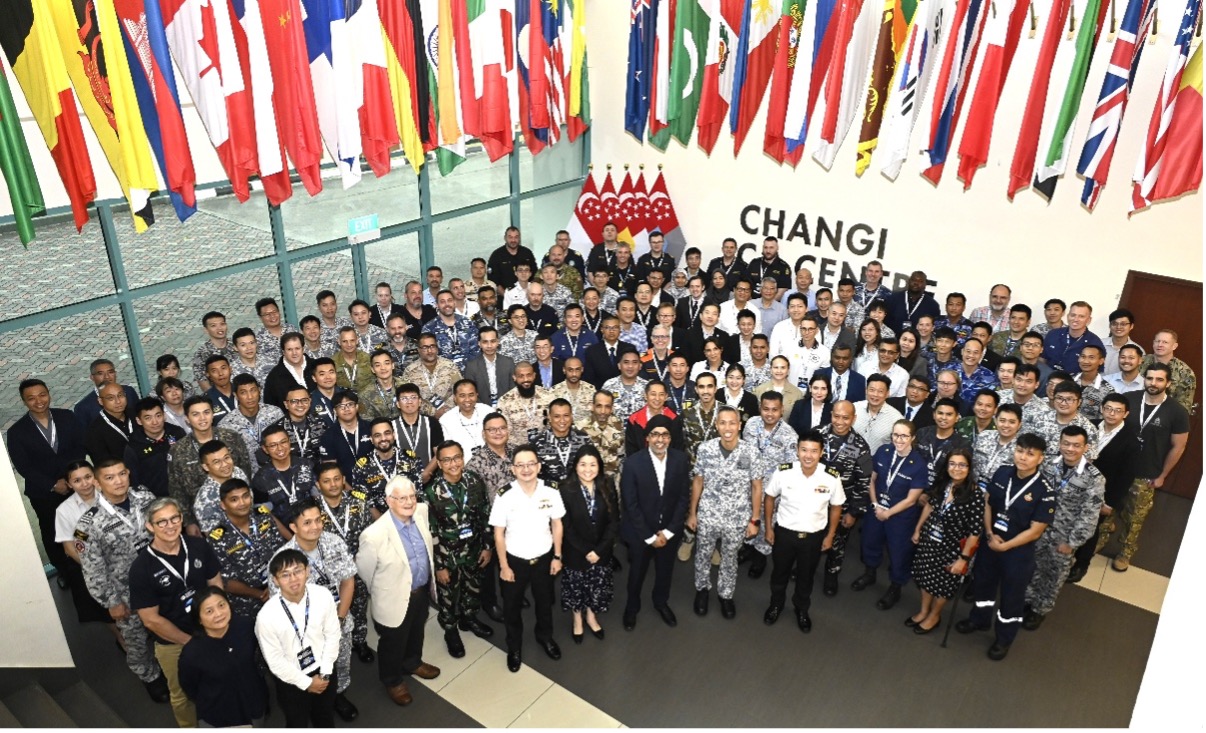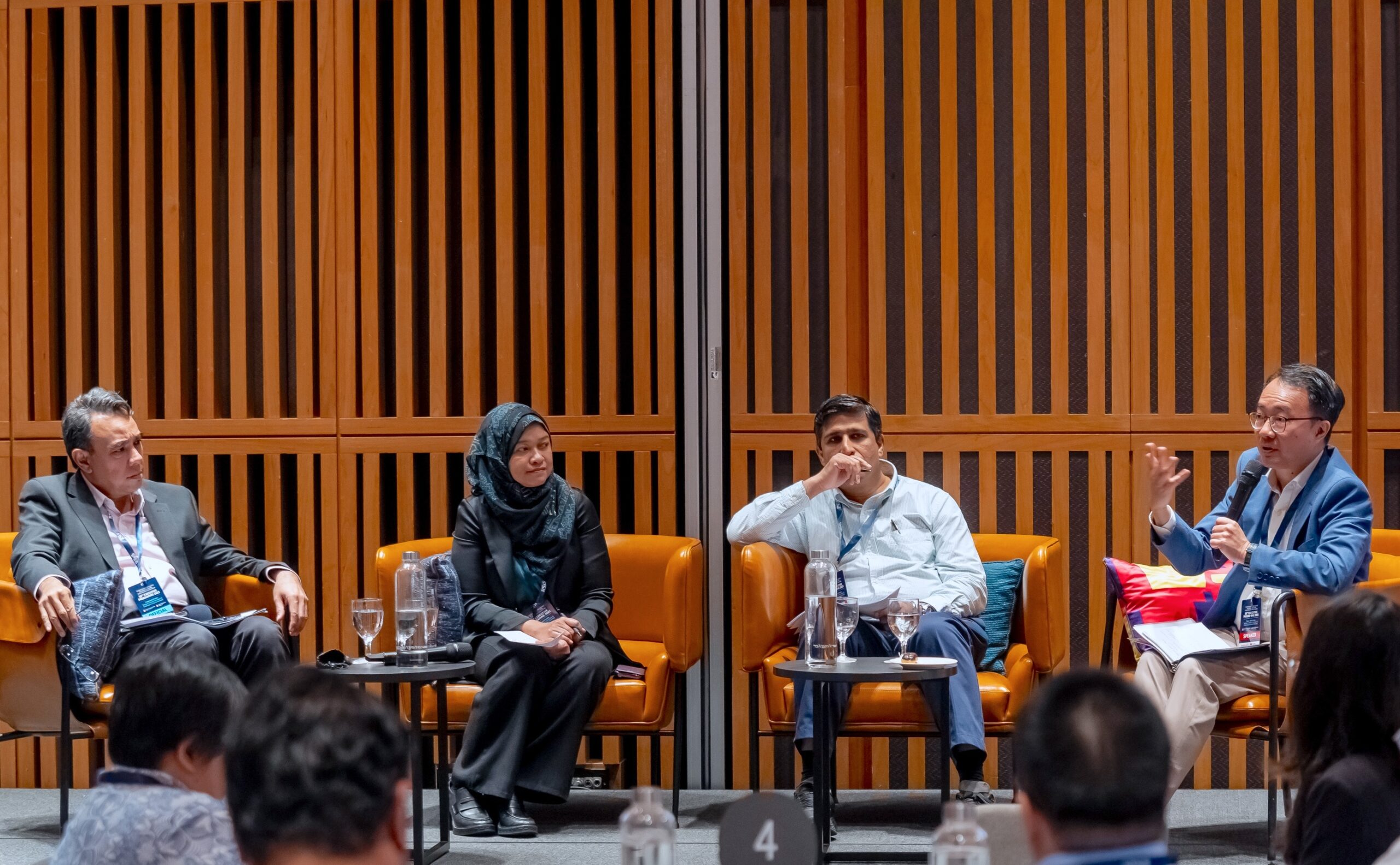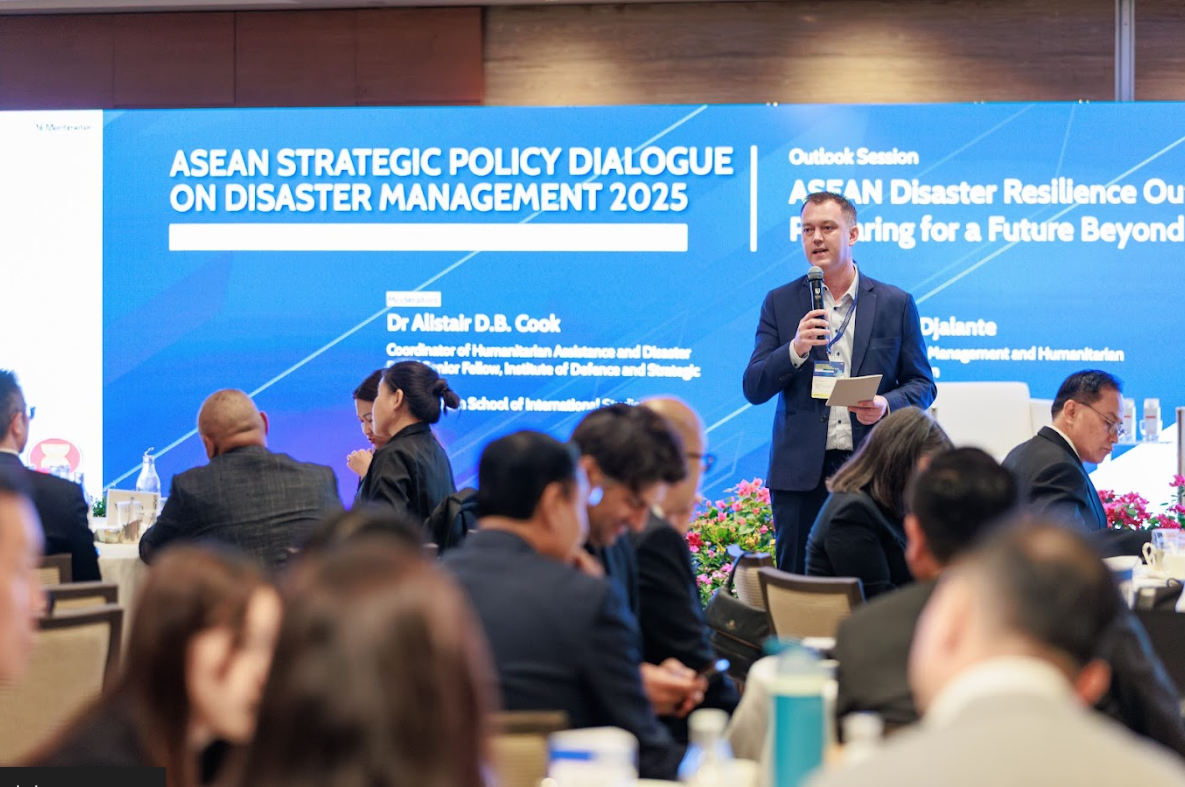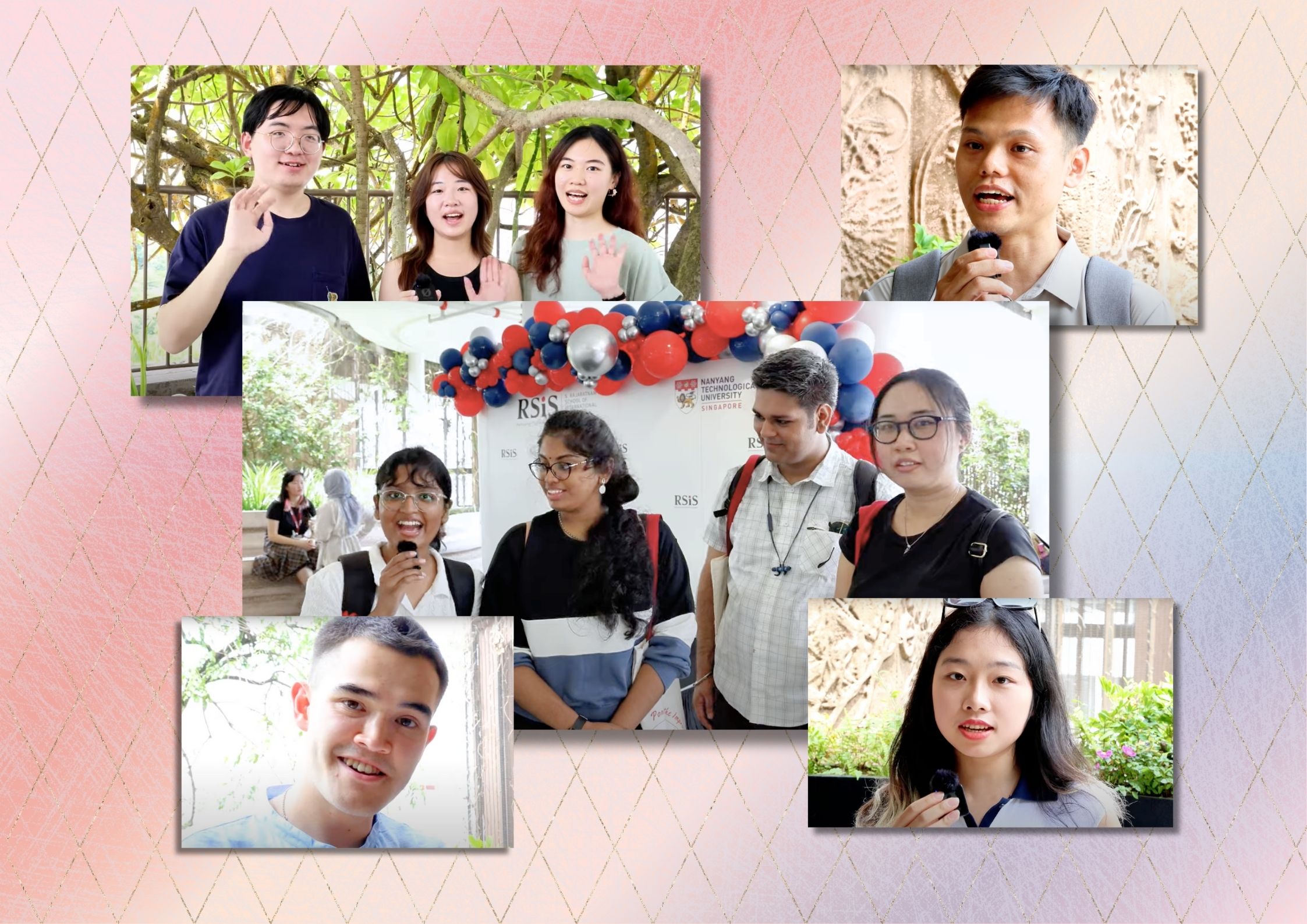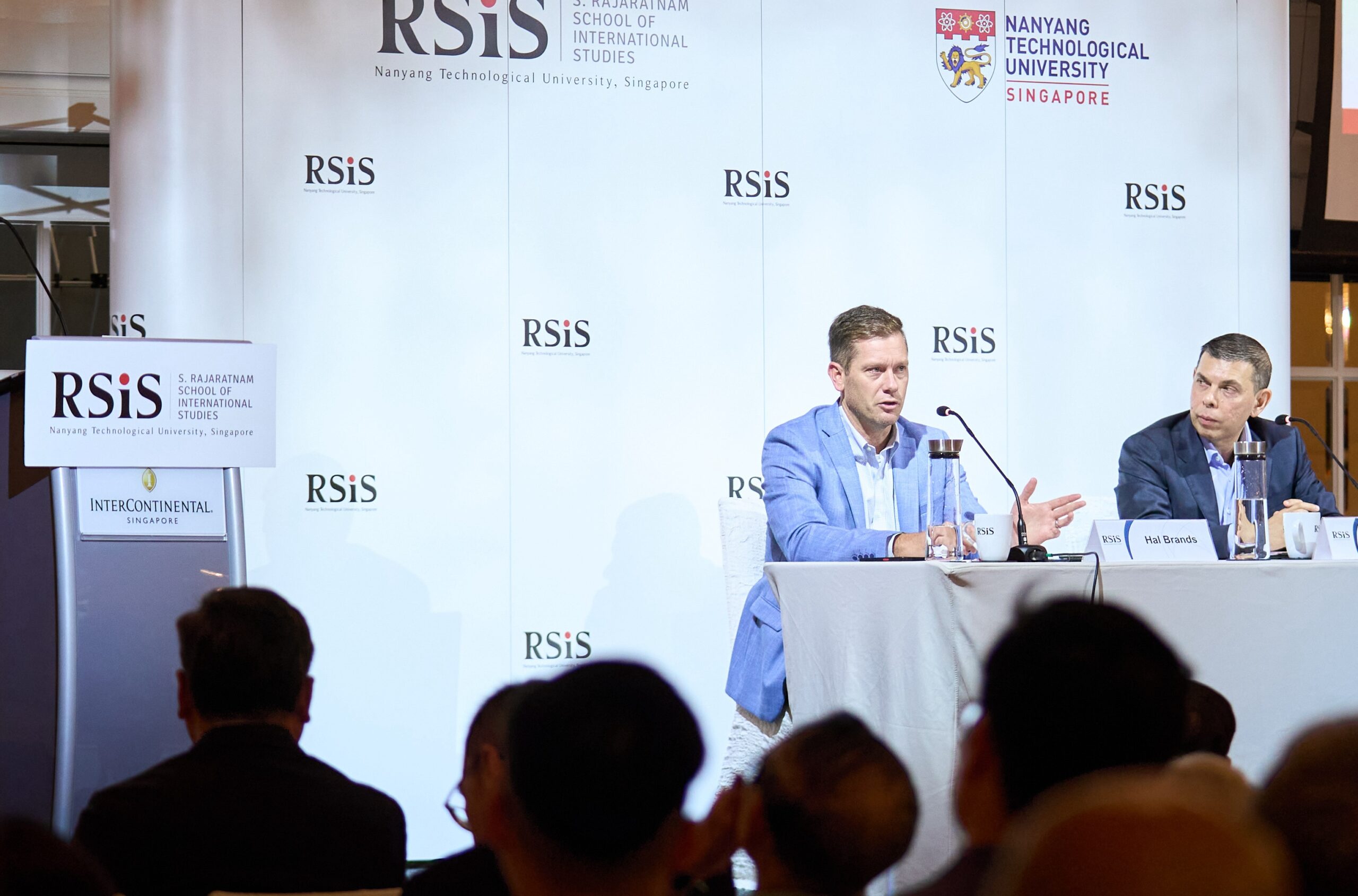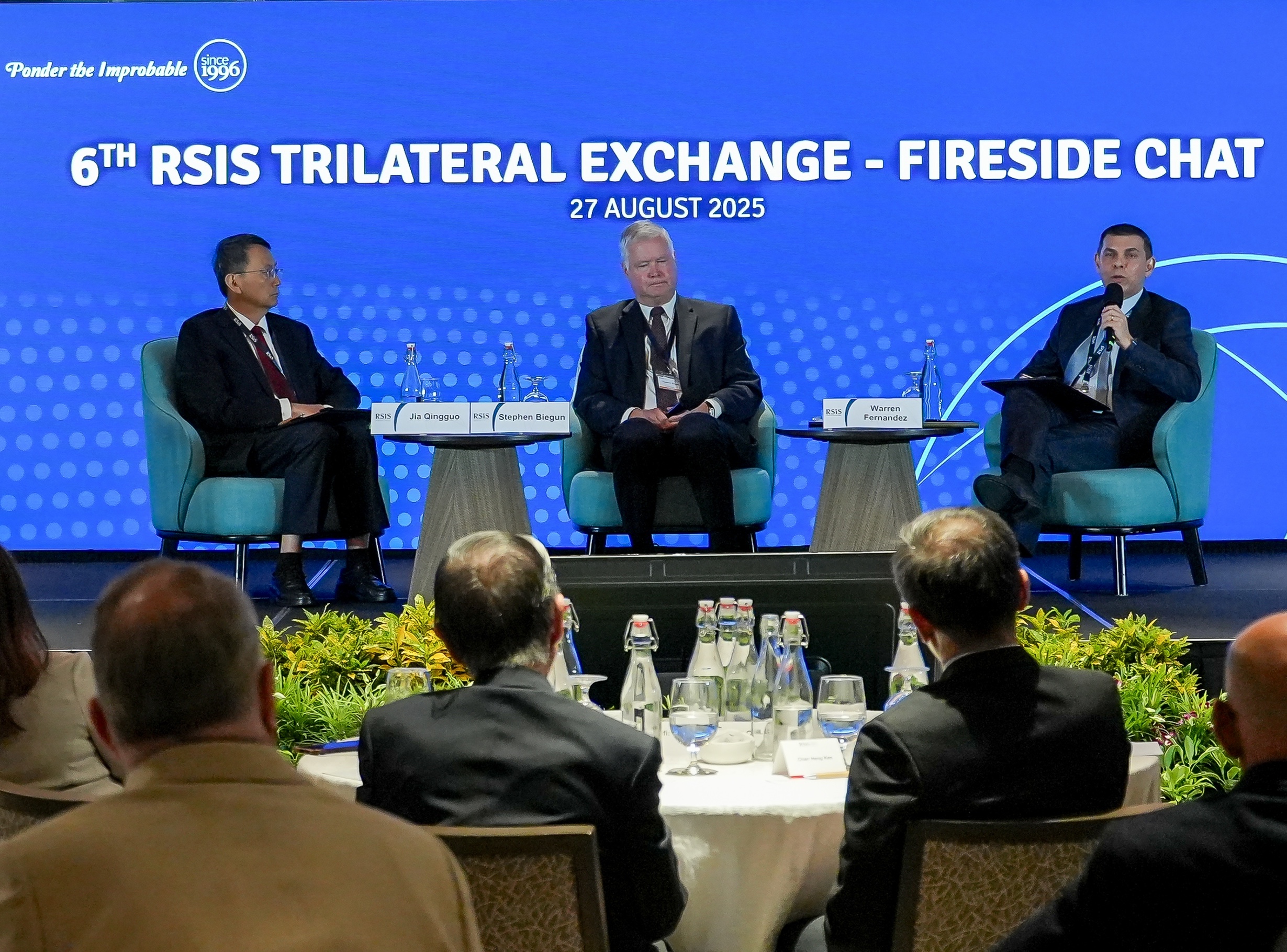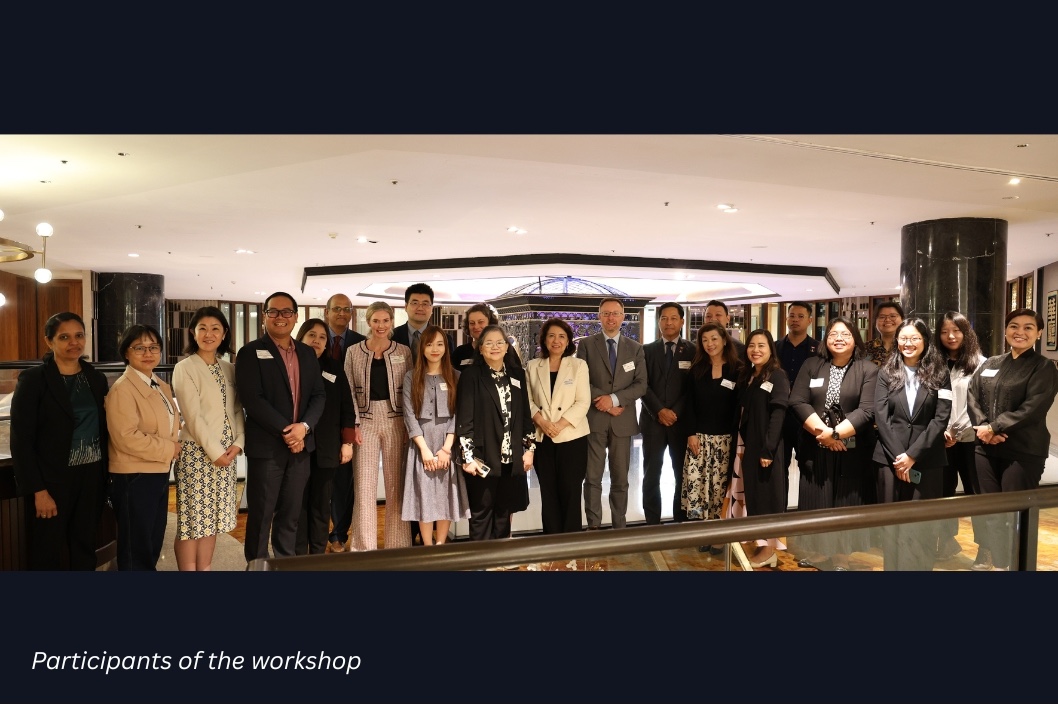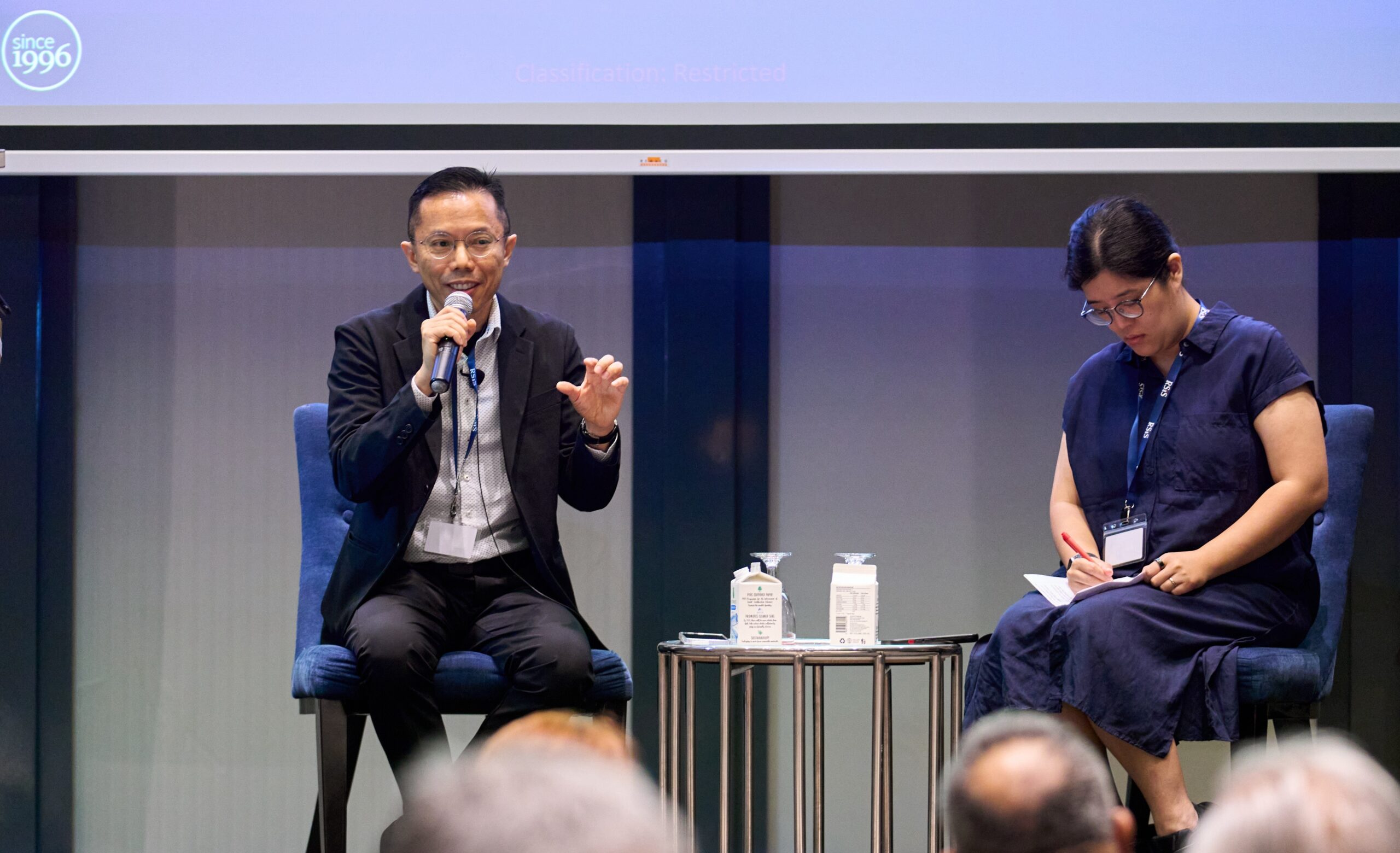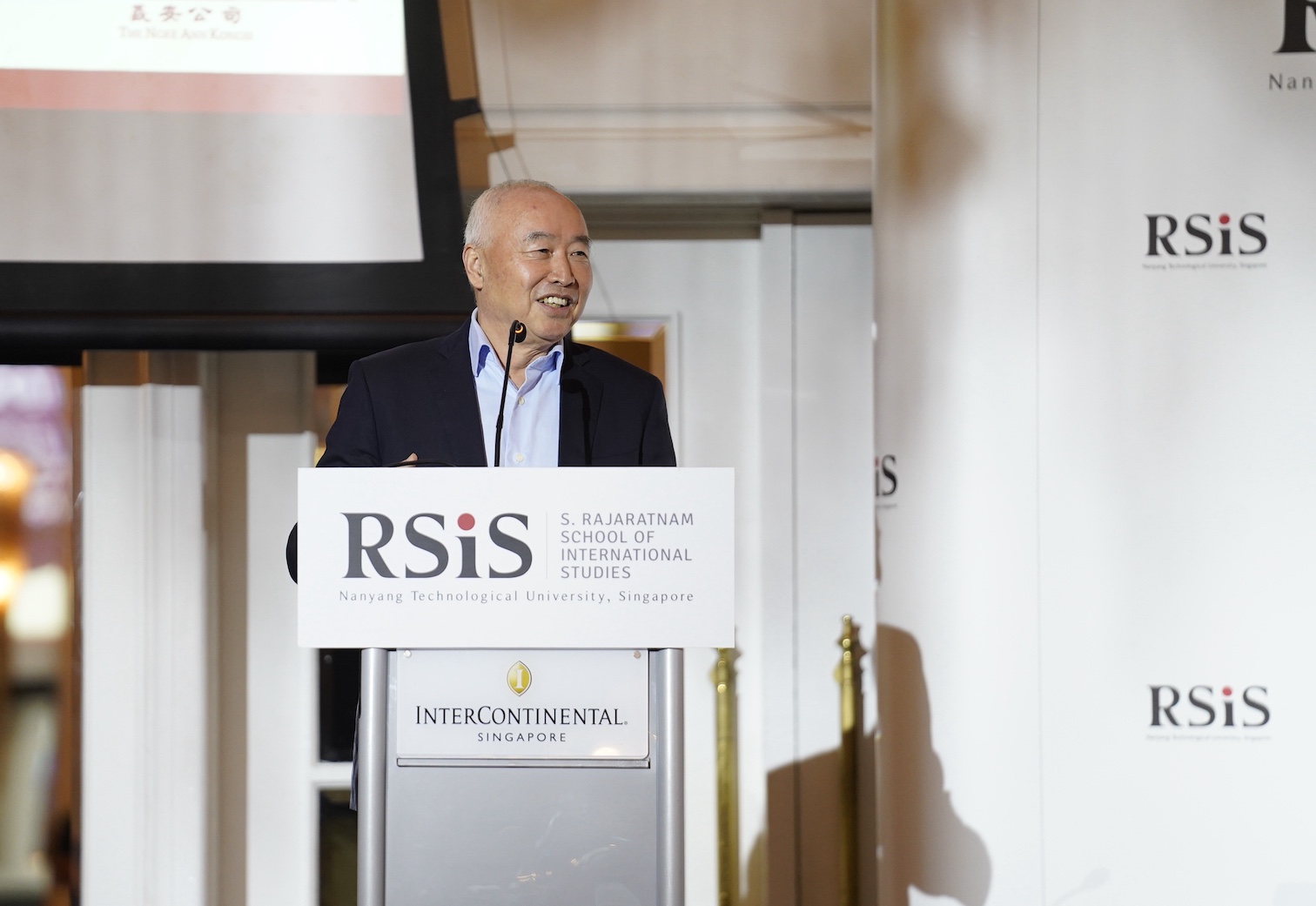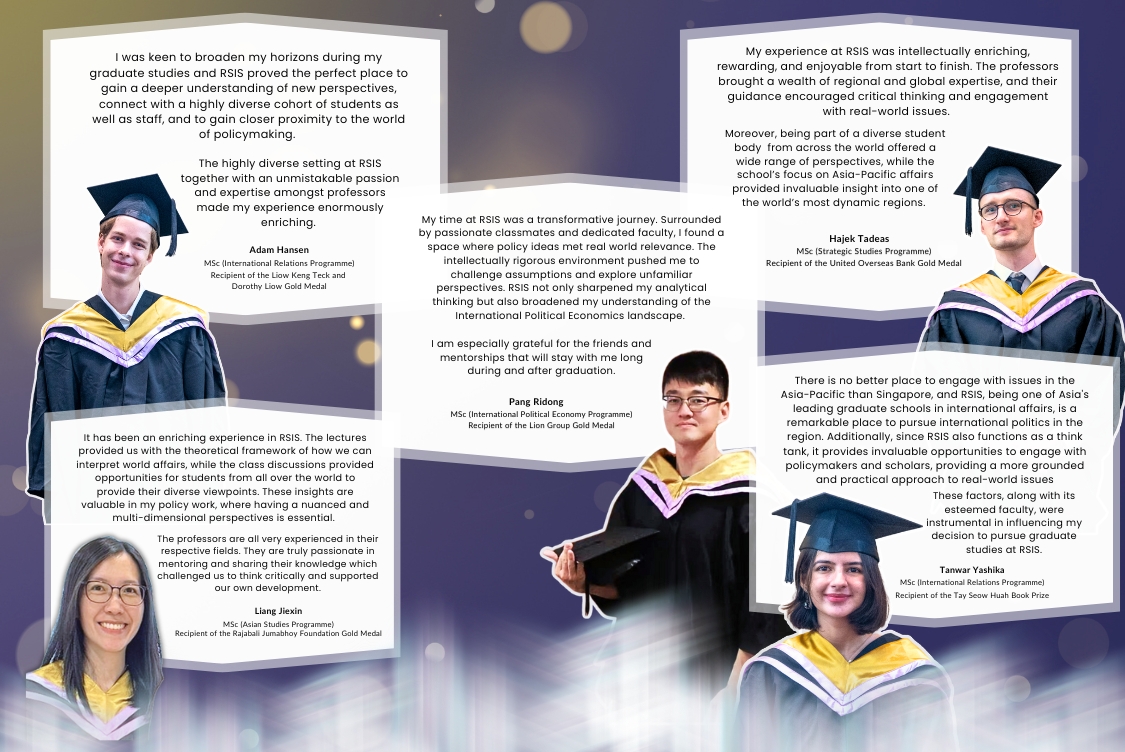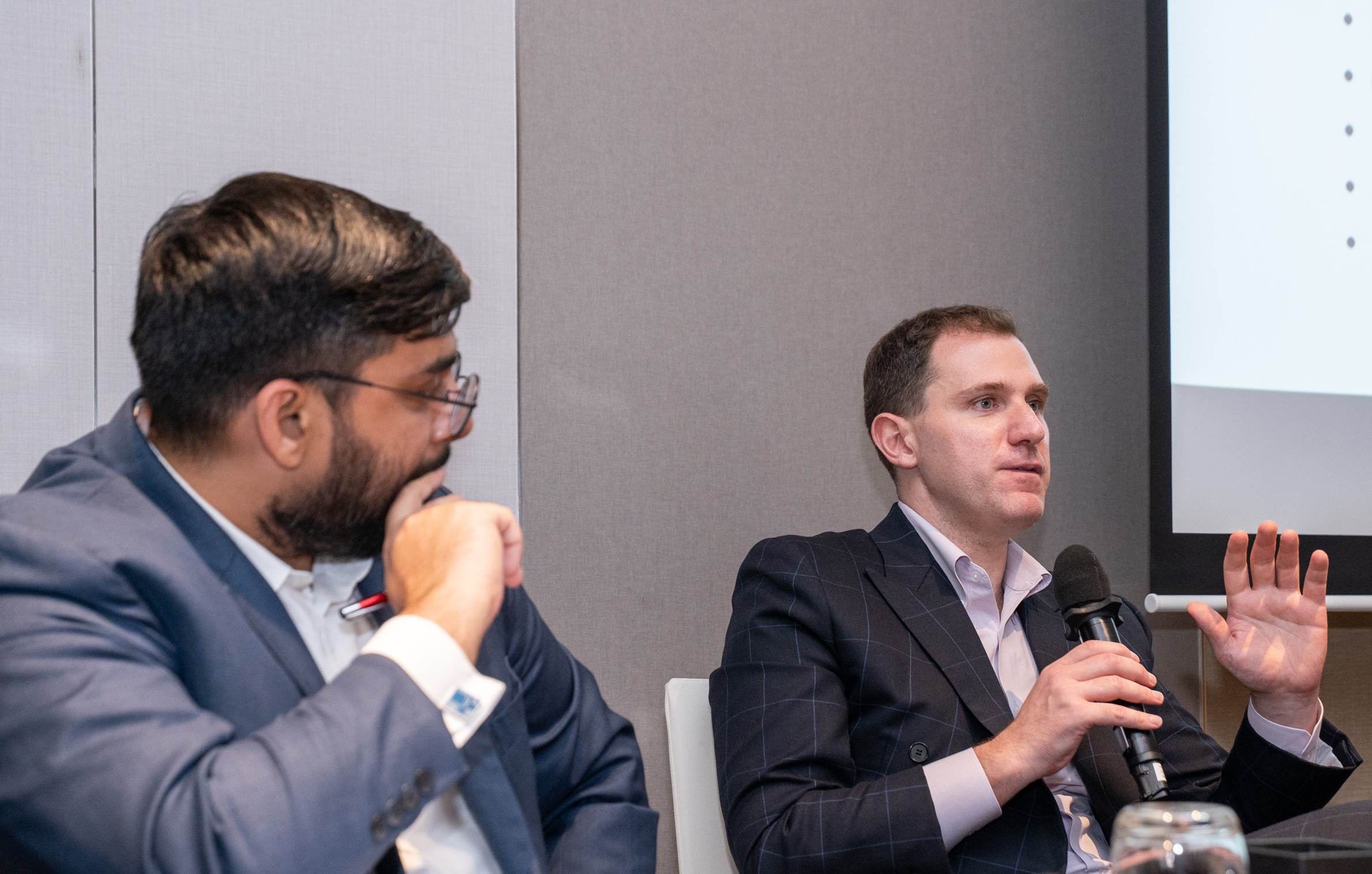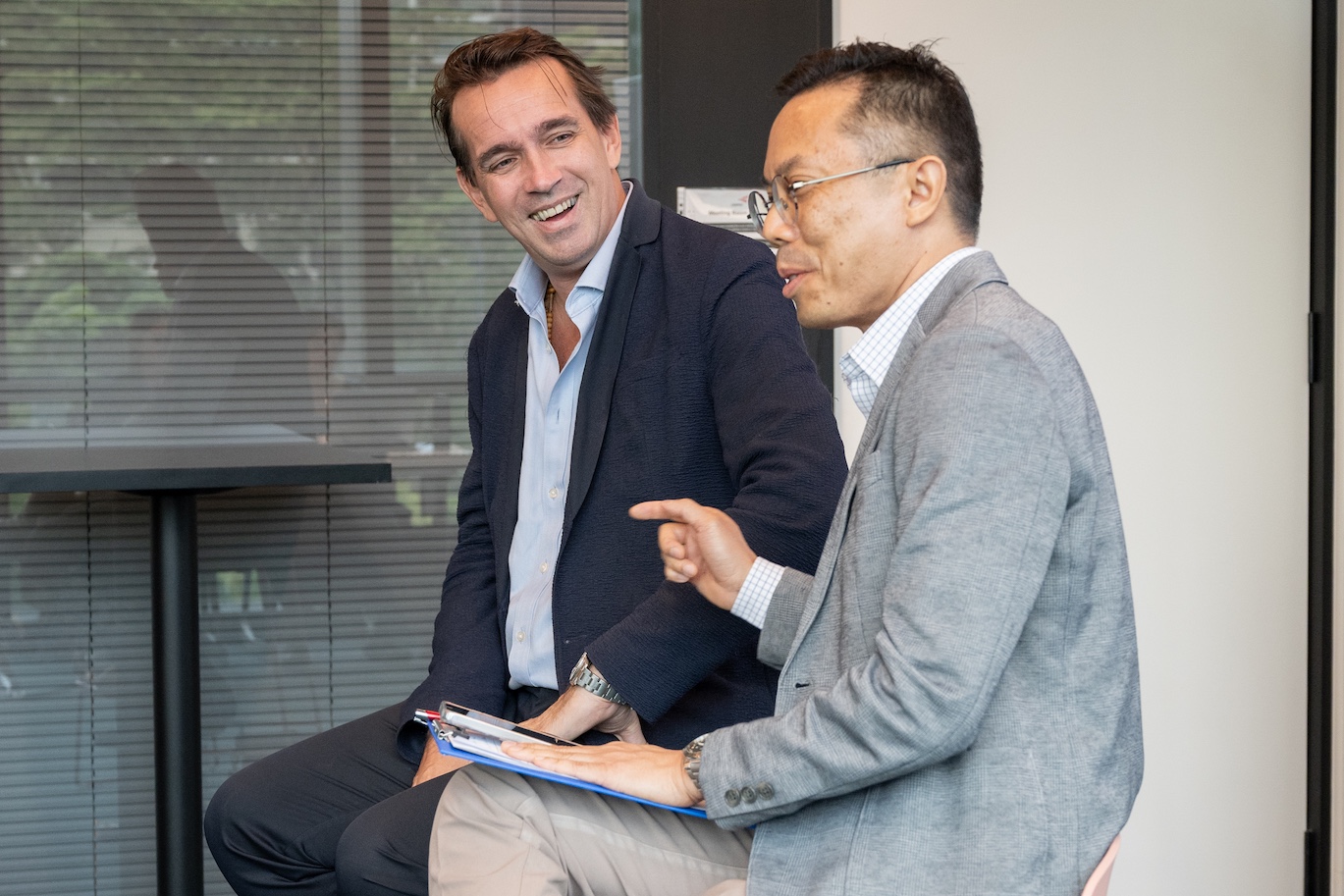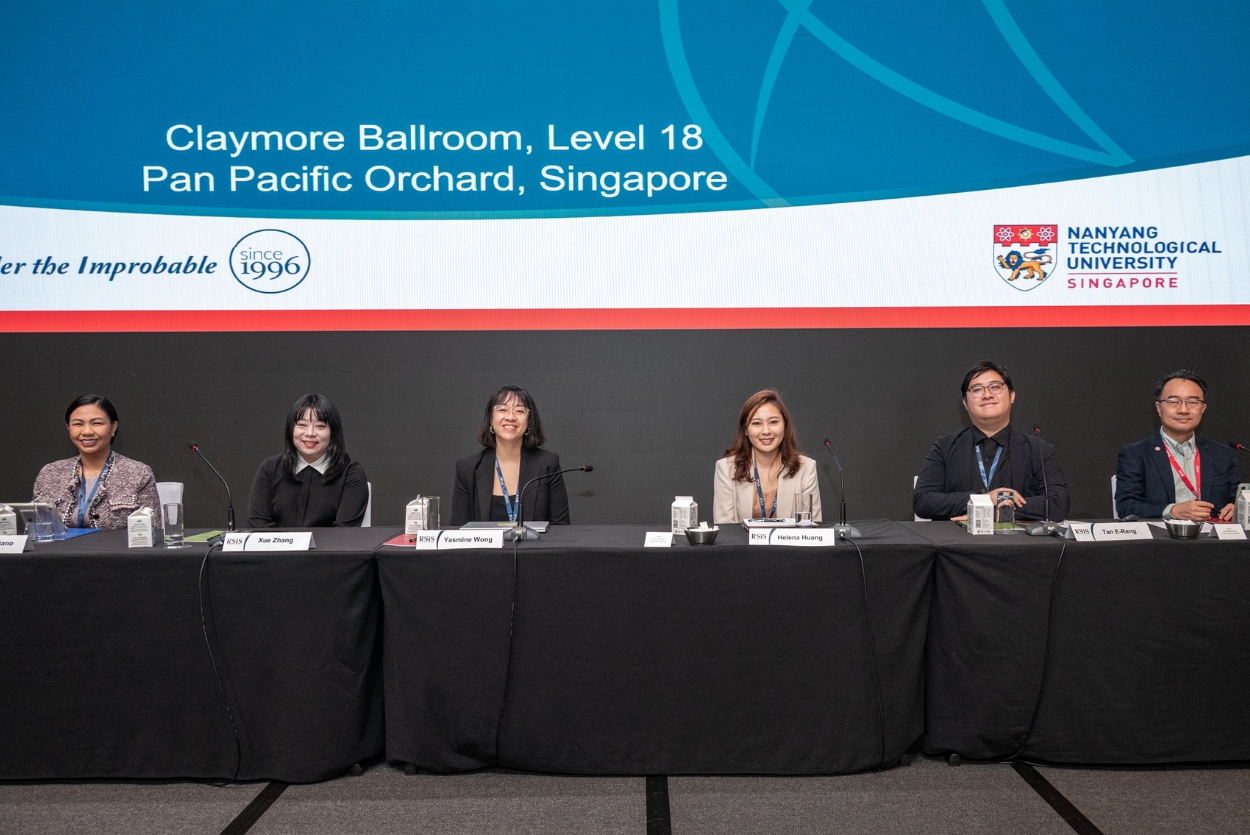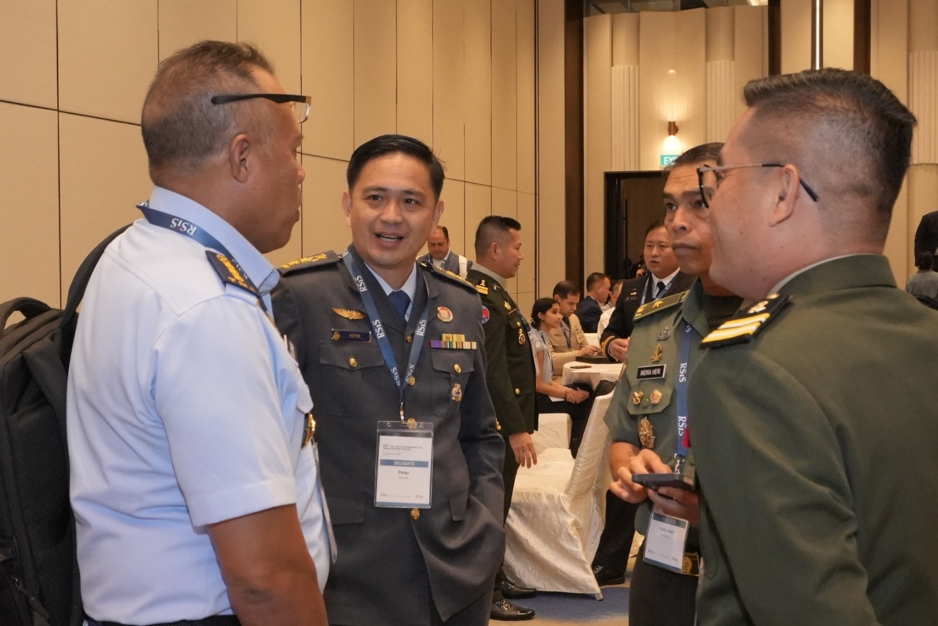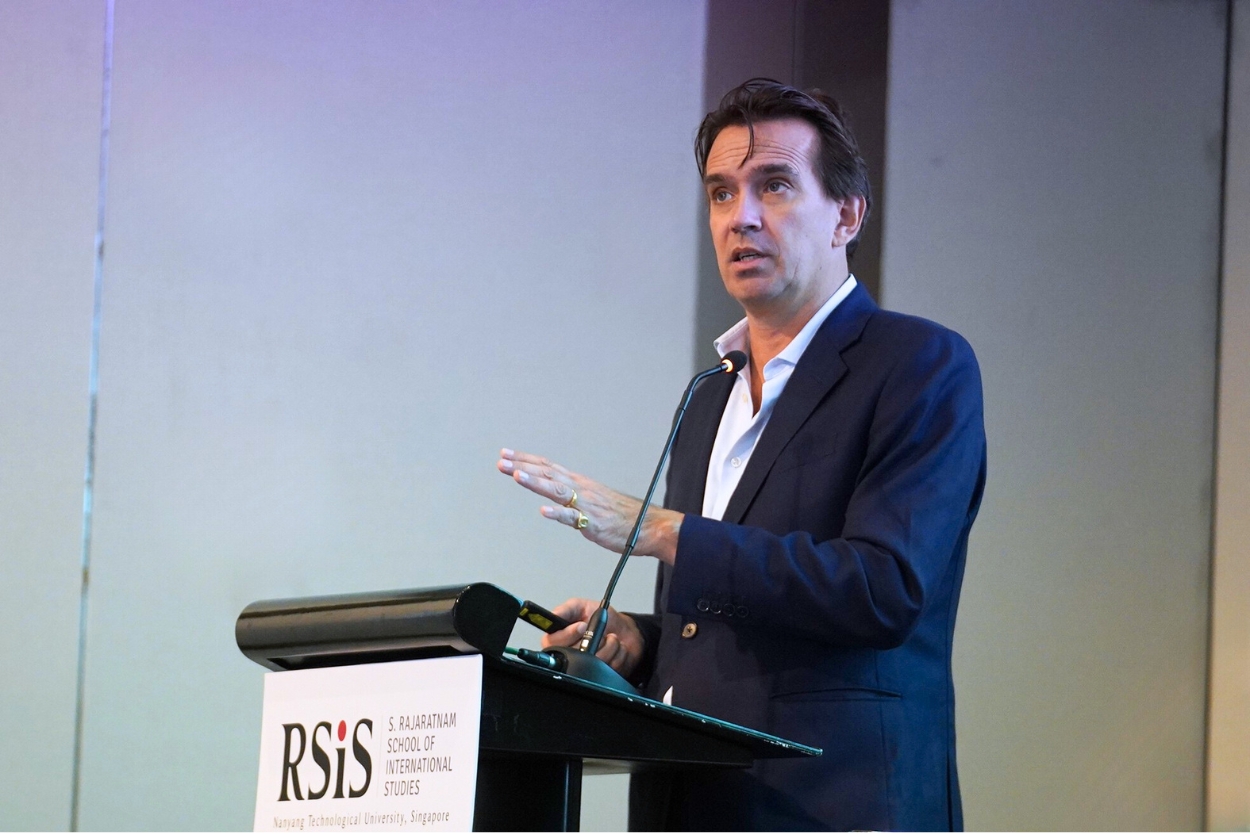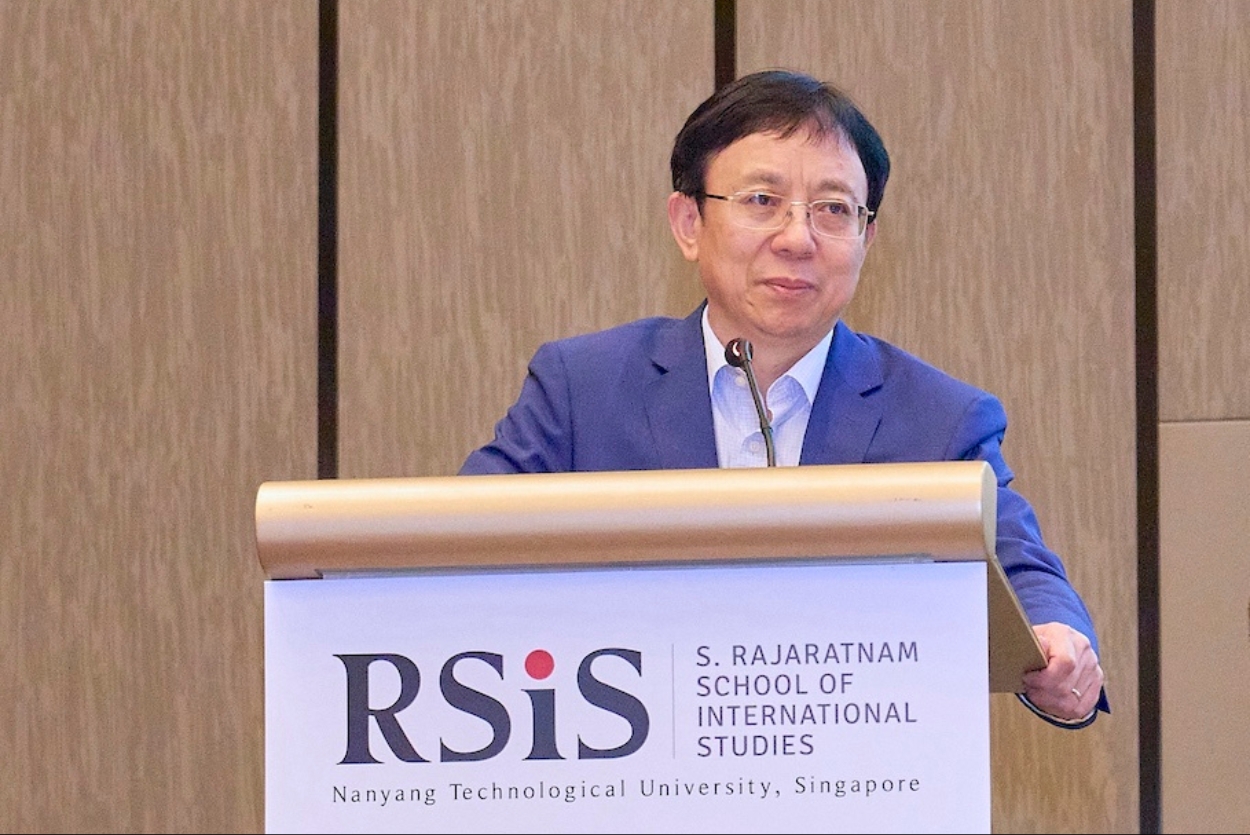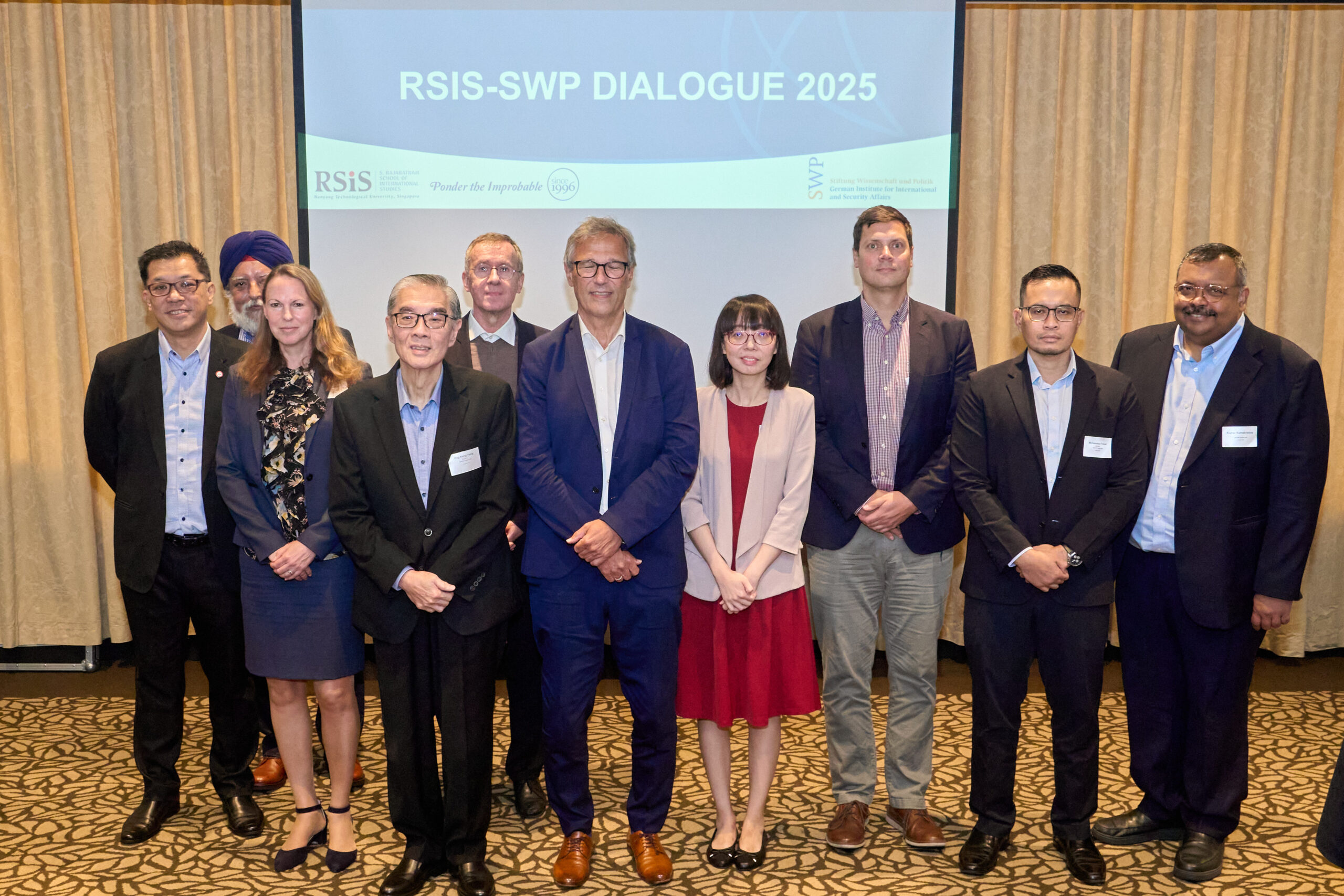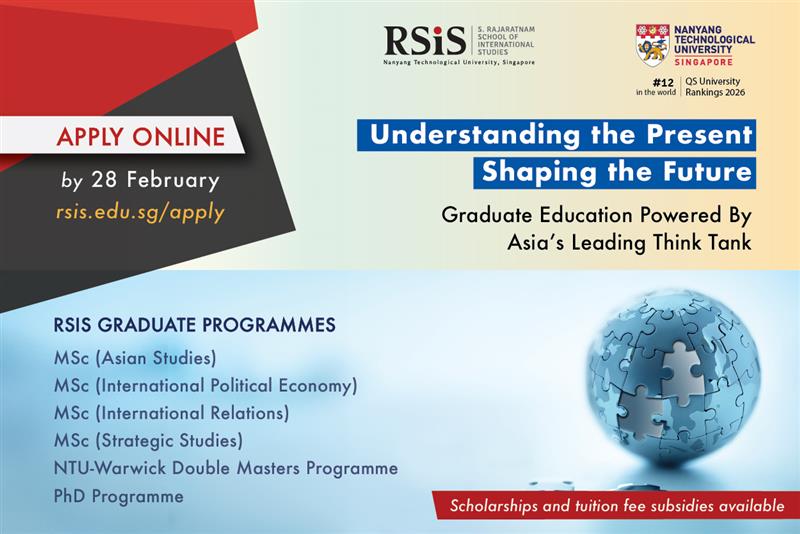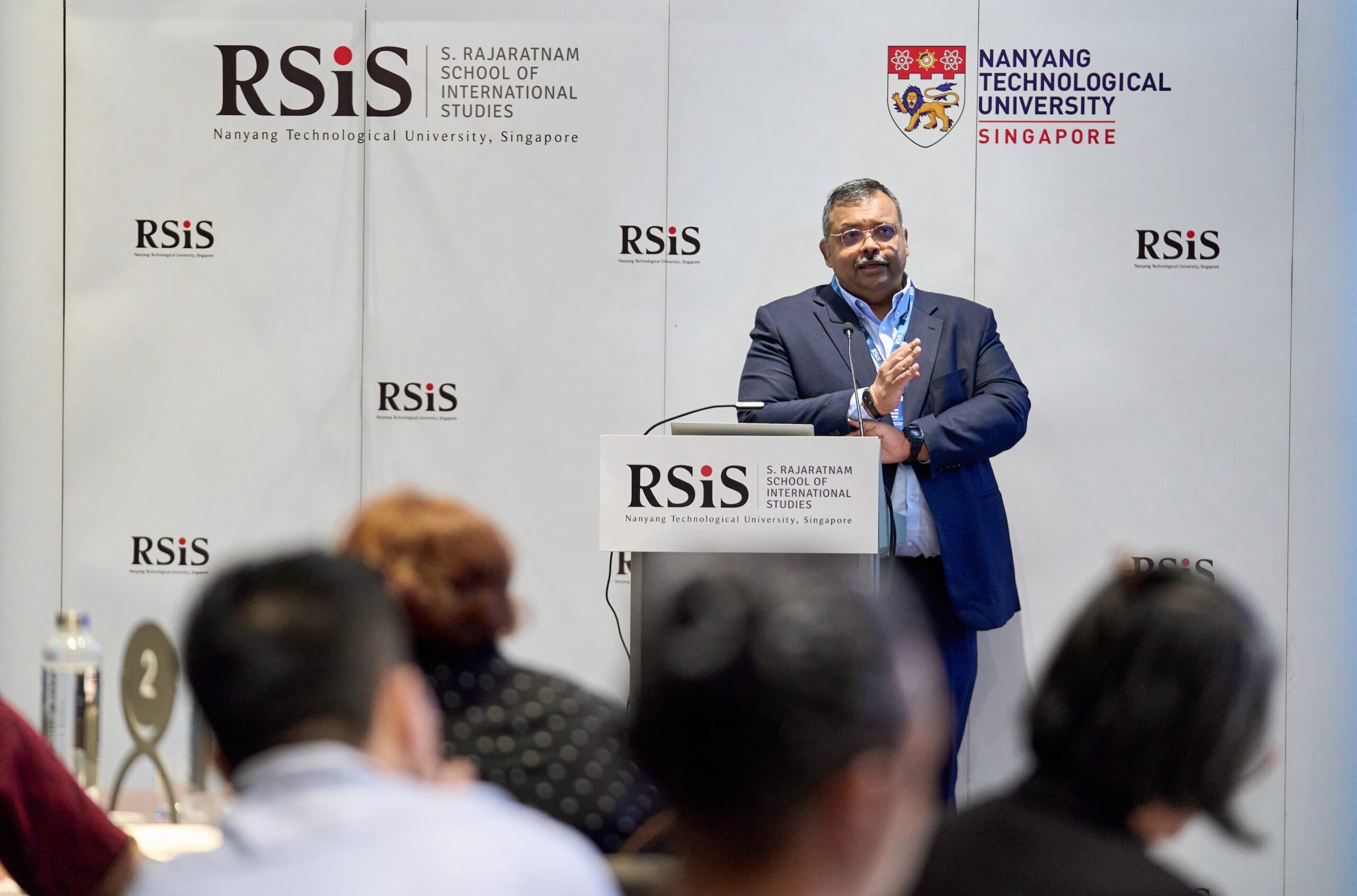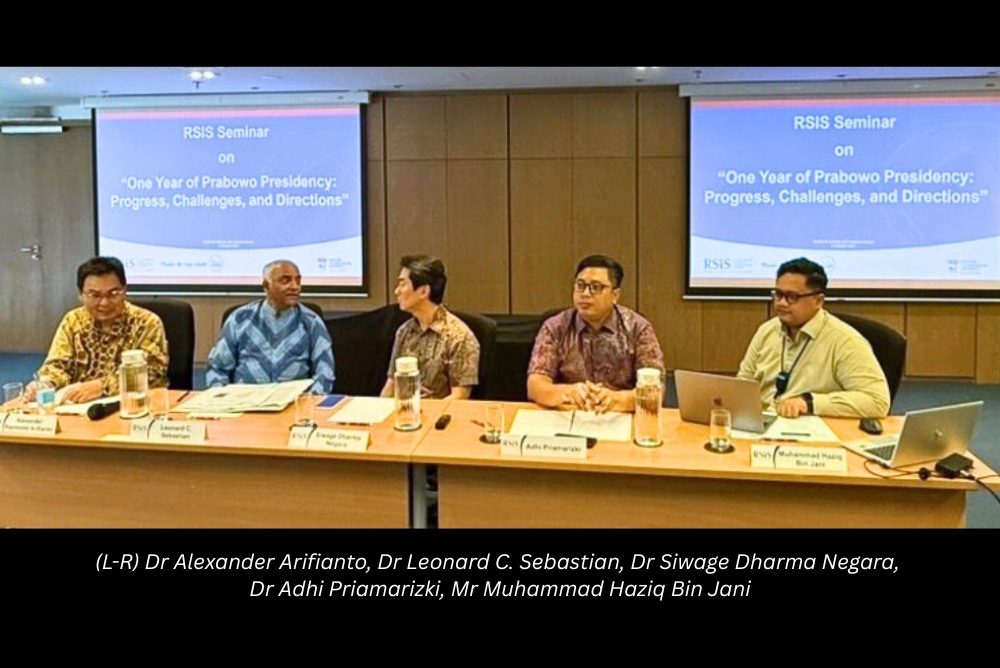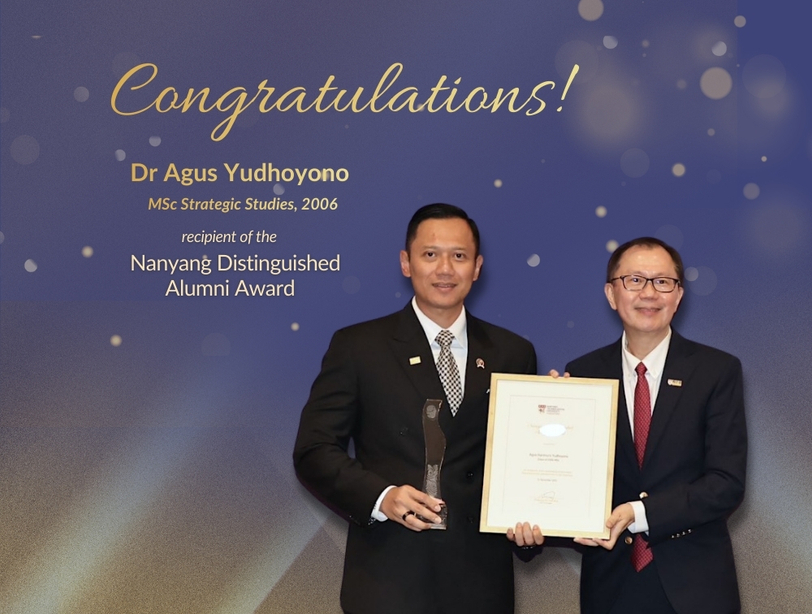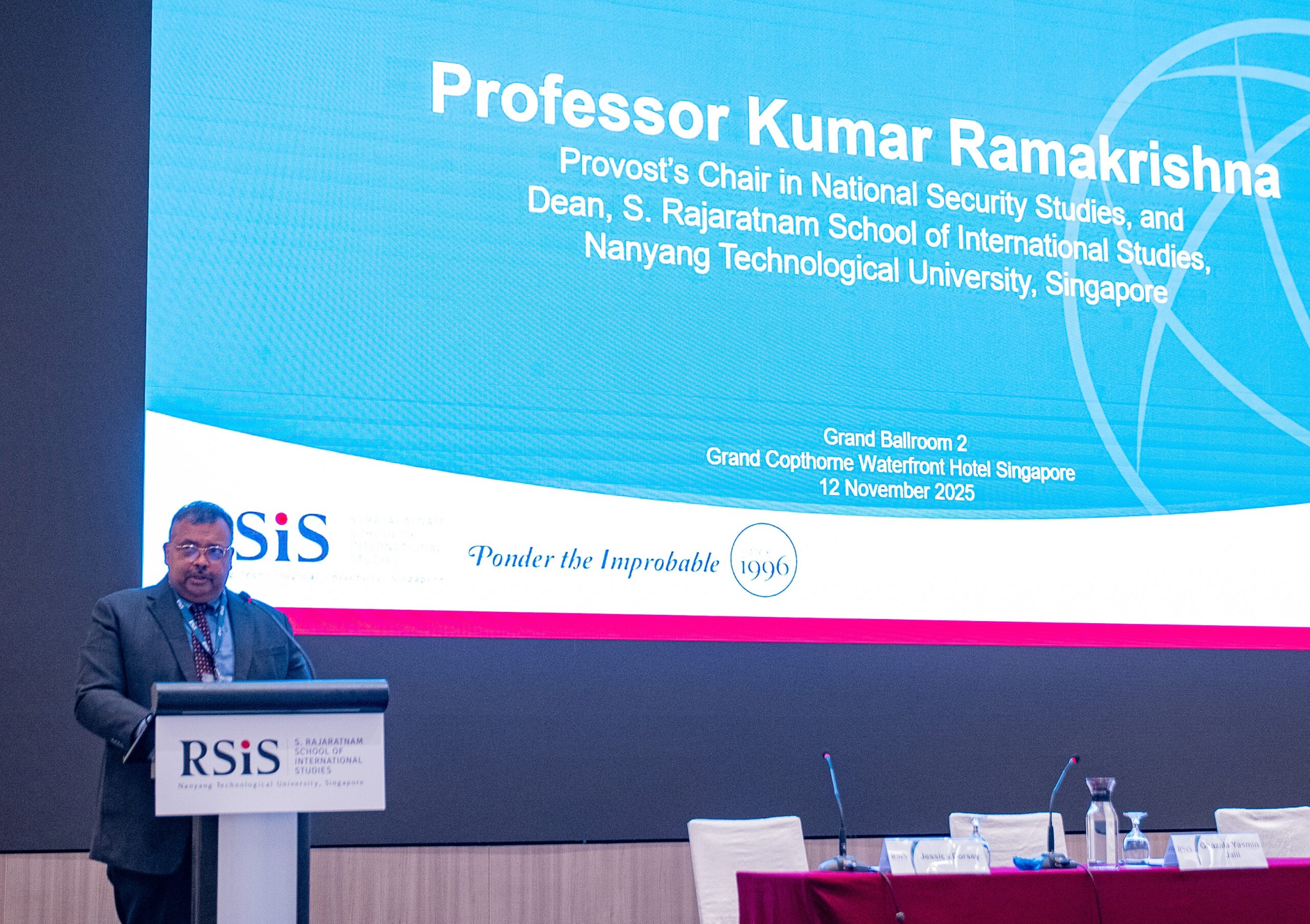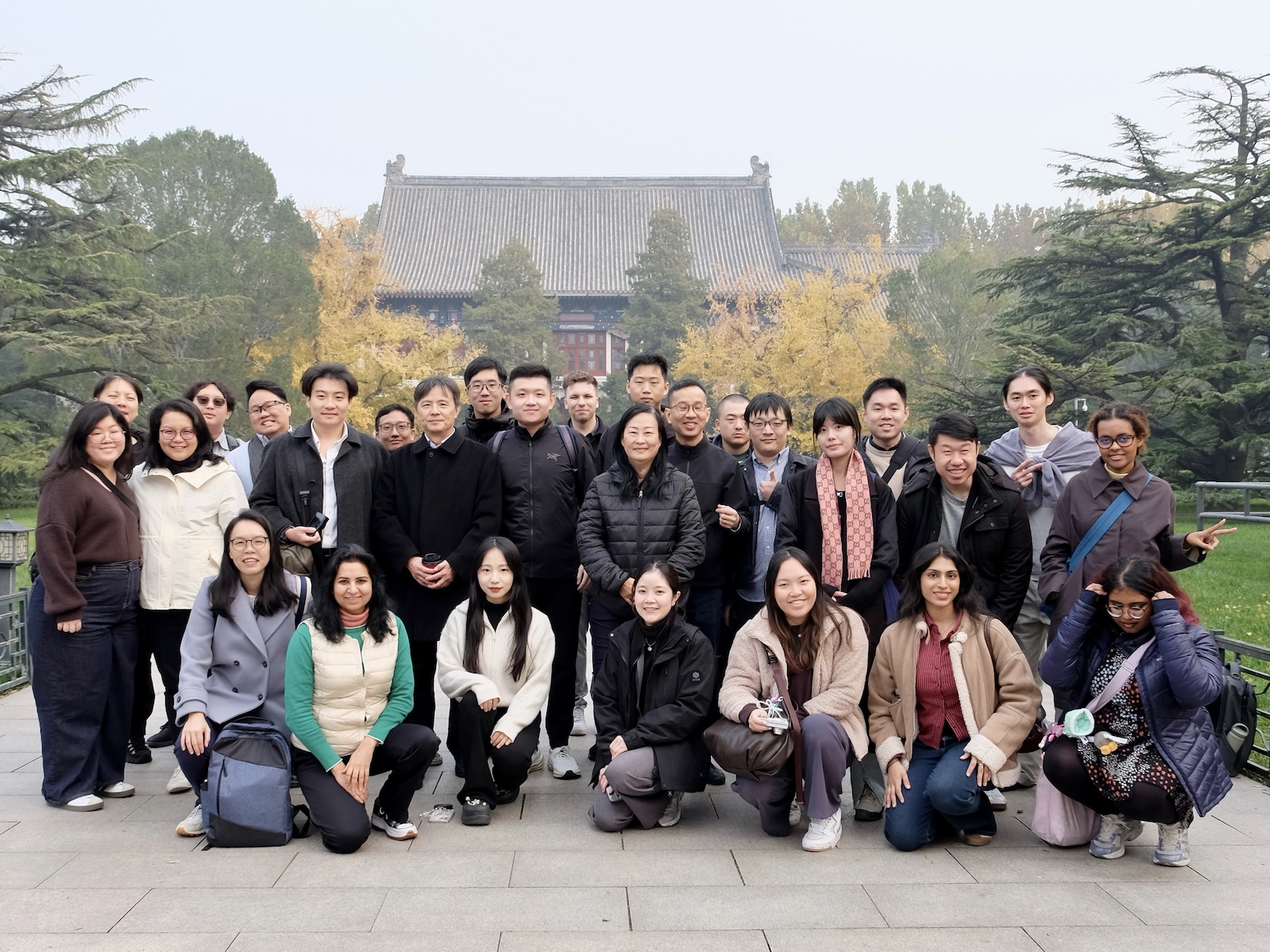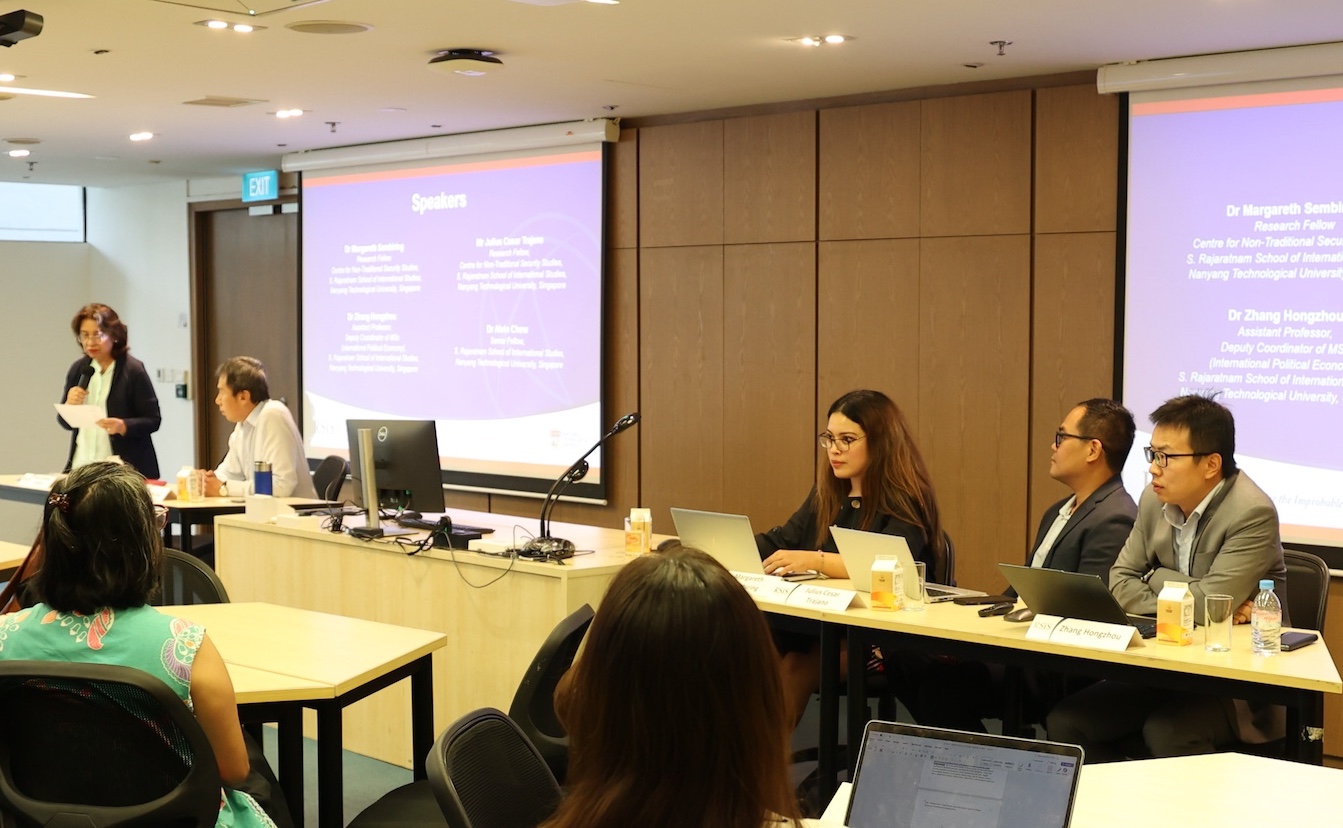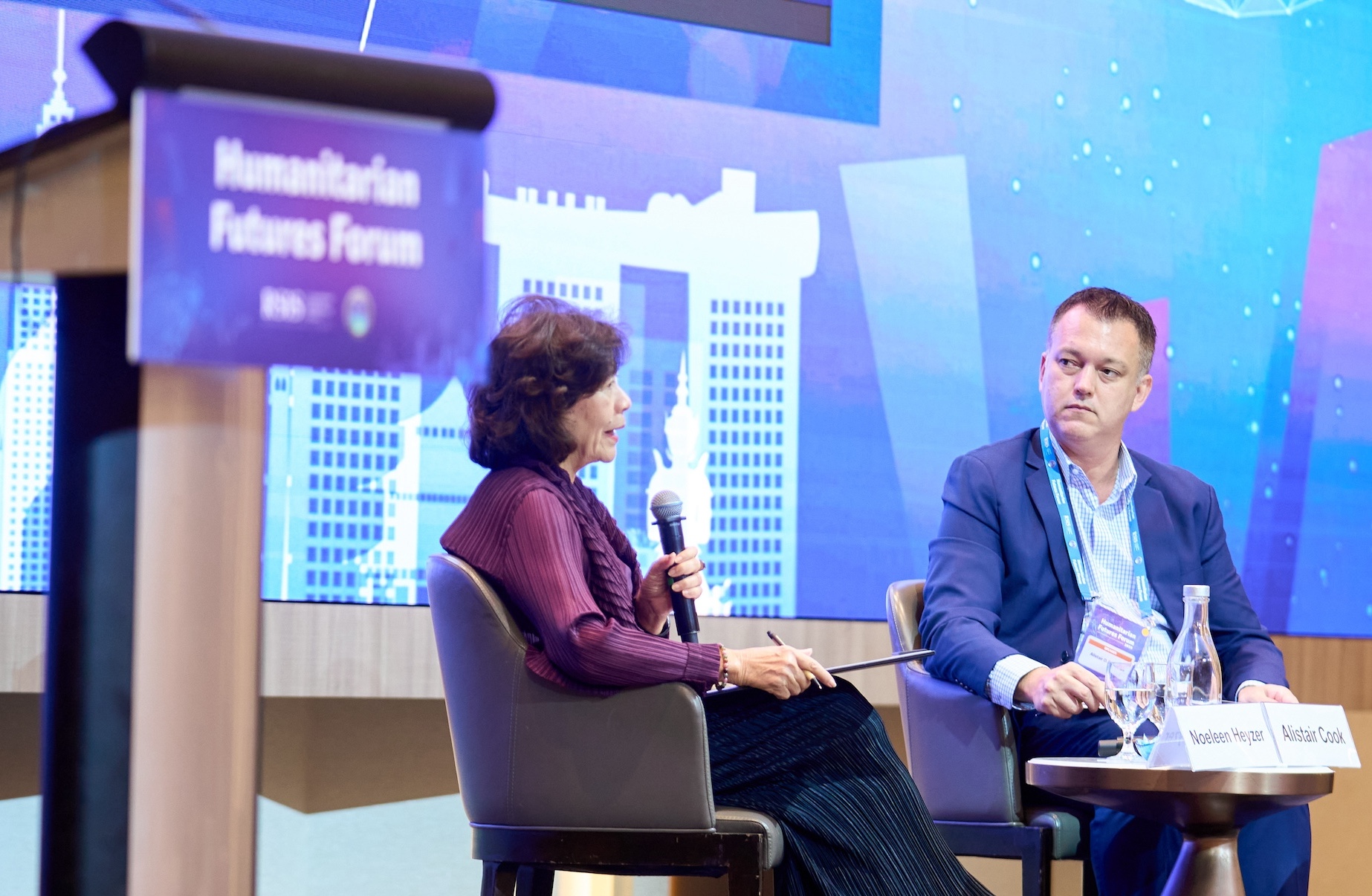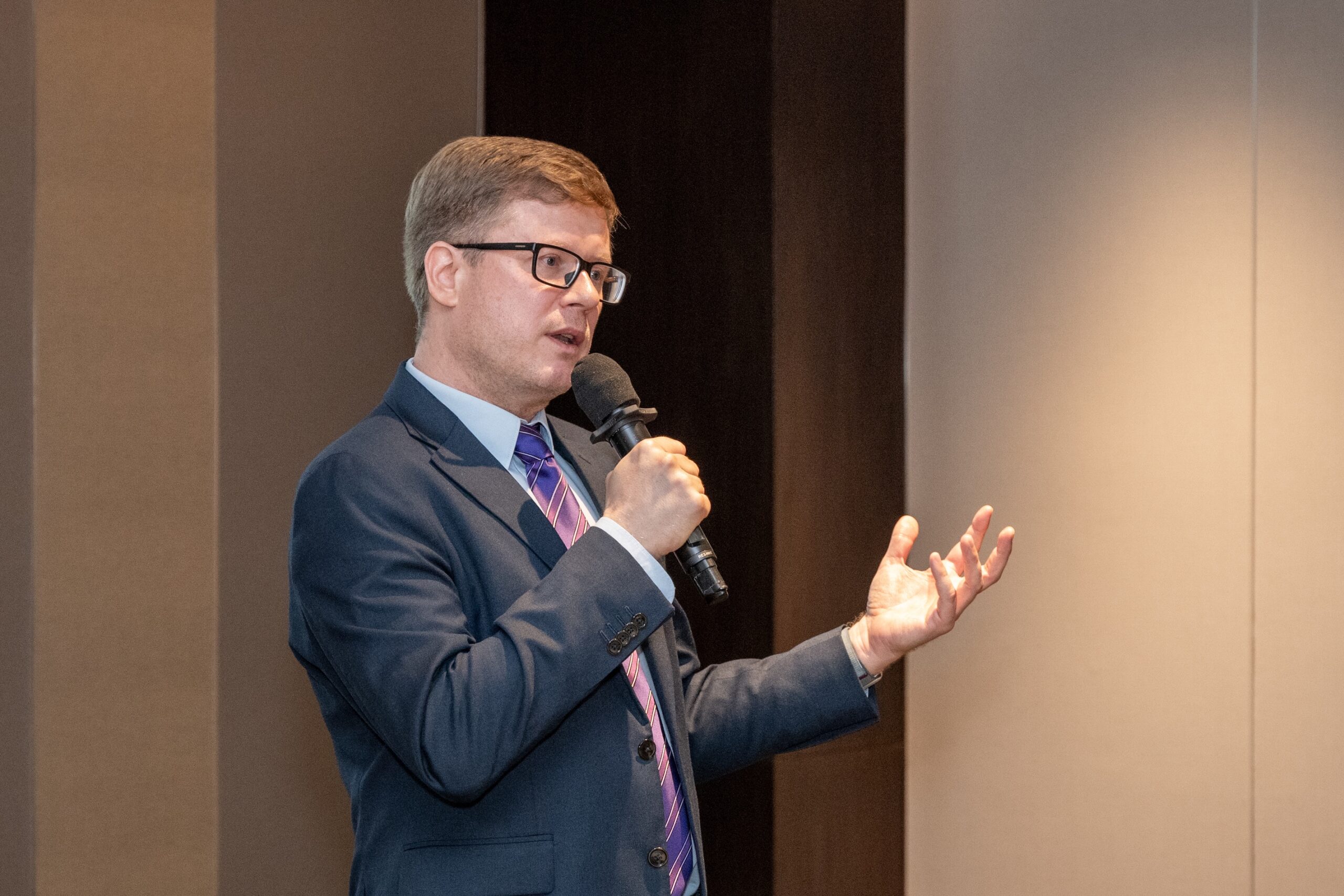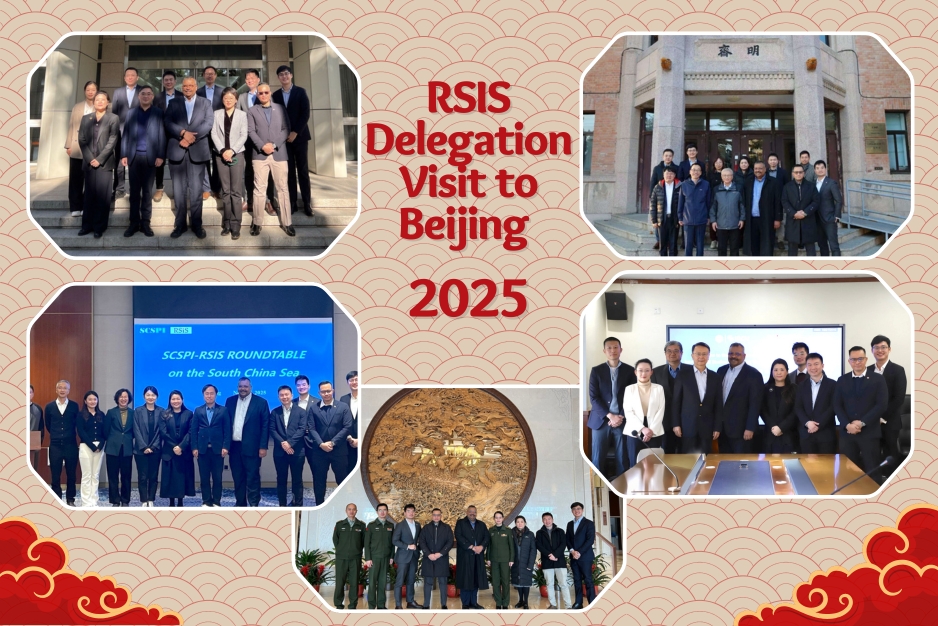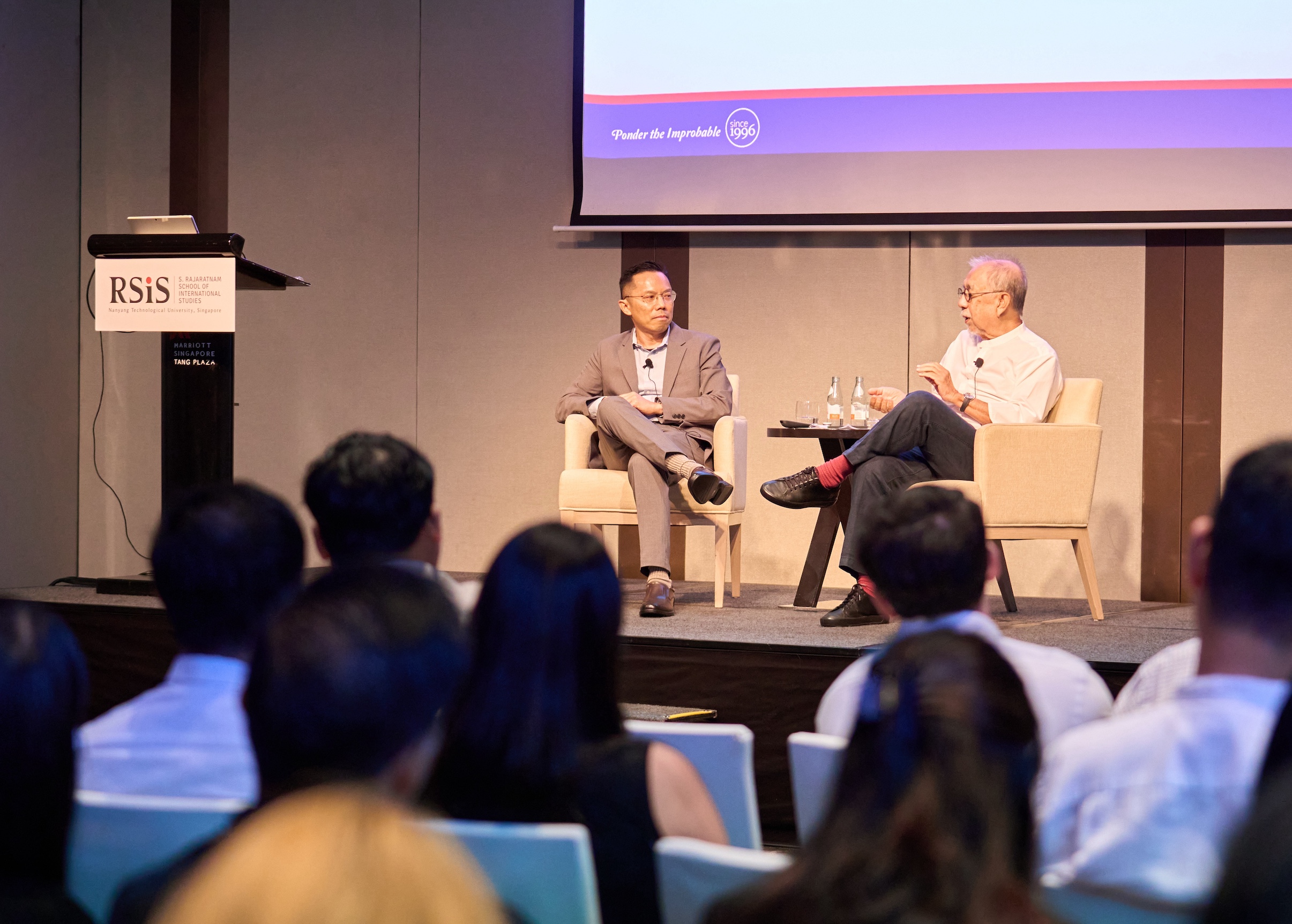
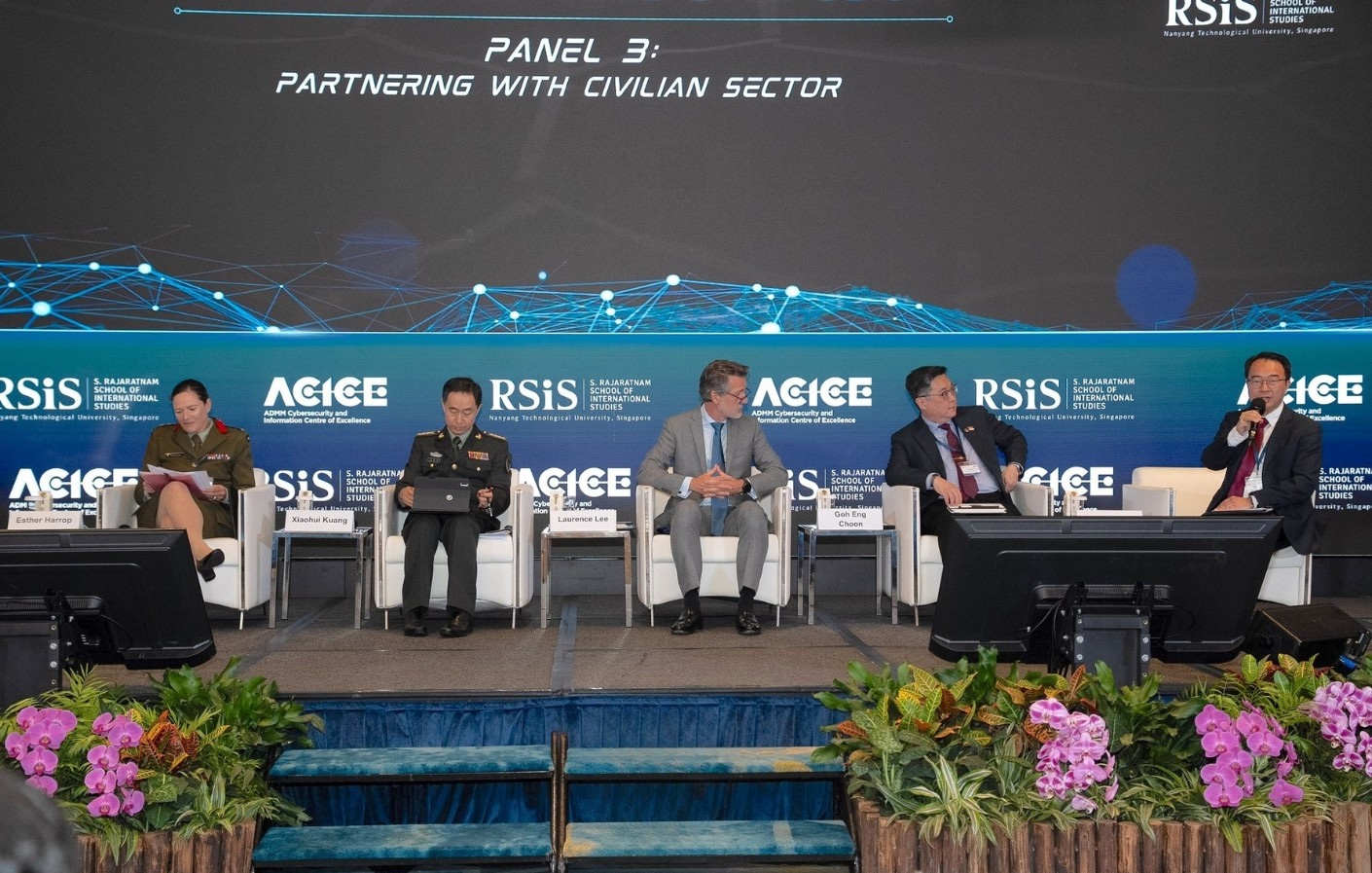
RSIS and the ASEAN Defence Ministers’ Meeting (ADMM) Cybersecurity and Information Centre of Excellence (ACICE) co-organised the 3rd Digital Defence Symposium (DDS) which took place from 22 to 23 July 2025. The theme of this year’s symposium is “Securing our Common Digital Frontiers”.
The 3rd DDS hosted more than 300 senior military and defence officials from 35 countries and international organisations, academic and think tank institutions, and industry experts. The syposium was opened by Ambassador Ong Keng Yong, Executive Deputy Chairman of RSIS, and featured a keynote address by Lieutenant General Susan Coyle, Chief of the Joint Capabilities Group of the Australian Armed Forces, three plenary discussions, and three concurrent thematic groups sessions over two days.
In his welcome remarks, Ambassador Ong urged all stakeholders and states to work closely together to tackle these challenges despite the ongoing competition and conflict happening in the world today. These remarks were followed by Lieutenant General Coyle speaking about the need to strengthen the partnership by like-minded partners with ASEAN frameworks and the need for militaries to be agile, in her keynote speech. In particular, there is a need for militaries to evolve both in structure and mindset, especially in how and when they share information.
The speakers on panel one discussed the need to build effective digital military forces and how it was best to do so. The issues discussed on the panel include how modern militaries should balance technological advancement with the human element of leadership, morale, and decision-making, and what matters most in force development across strategic environments.
Panel two was on the Responsible Behaviour in Cyber and Information Domains. The speakers reflected on how a balanced approach between countering hostile influence operations and respecting civil liberties can be taken and the role military organisations can play in fostering regional cooperation and confidence-building in the cyber and information domains.
Panel three explored the potential partnerships that militaries can form with the civilian sector. Speakers on the panel explored ways the military could better engage with the private sector to co-develop scalable and secure cyber capabilities, especially given the pace of innovation and the global nature of digital infrastructure and the mechanisms that can be established to enable real-time, two-way threat intelligence sharing between military and private sector actors which is within legal, commercial, and operational boundaries.
The three thematic groups were curated for a more granular perspective and discussion on the topics concerning the cyber and information domain. The thematic groups were held concurrently on the second day of the 3rd DDS, allowing participants to further their domain expertise.
Thematic group one focused its discussion on the role of militaries in building up national cyber resilience. The group was asked to discuss the role of the military in supporting whole-of-nation efforts to build cyber resilience, particularly in protecting critical infrastructure and enabling rapid response to cyber incidents, and how governments can build a national cyber workforce that combines military, civilian, and private sector expertise to effectively anticipate, detect, and respond to cyber threats.
Thematic group two discussed the role of militaries in countering disinformation and misinformation and how to build social resilience. The panel opined on the role militaries should play in identifying and countering foreign disinformation campaigns, while ensuring respect for democratic values, civil liberties, and public trust, and the mechanisms can be established to enhance collaboration between militaries, civilian agencies, and private platforms in detecting, attributing, and responding to disinformation threats.
Thematic group three was on the threat landscape and information sharing. The panellists were asked to show what the biggest challenges the private sector faces in detecting and responding to emerging digital threats are, and how can the military better understand and support these efforts. They were also called to share how public-private partnerships on information sharing be structured to ensure timely, secure, and actionable exchange of cyber threat intelligence without compromising operational security or commercial confidentiality.
The symposium also provided opportunities for participants to conduct bilateral engagements on the sidelines by senior cyber defence officials. By convening high ranking participants from all over the world, the DDS enables the conduct of defence diplomacy and builds multilateral cooperation in both cyber and information domains.




